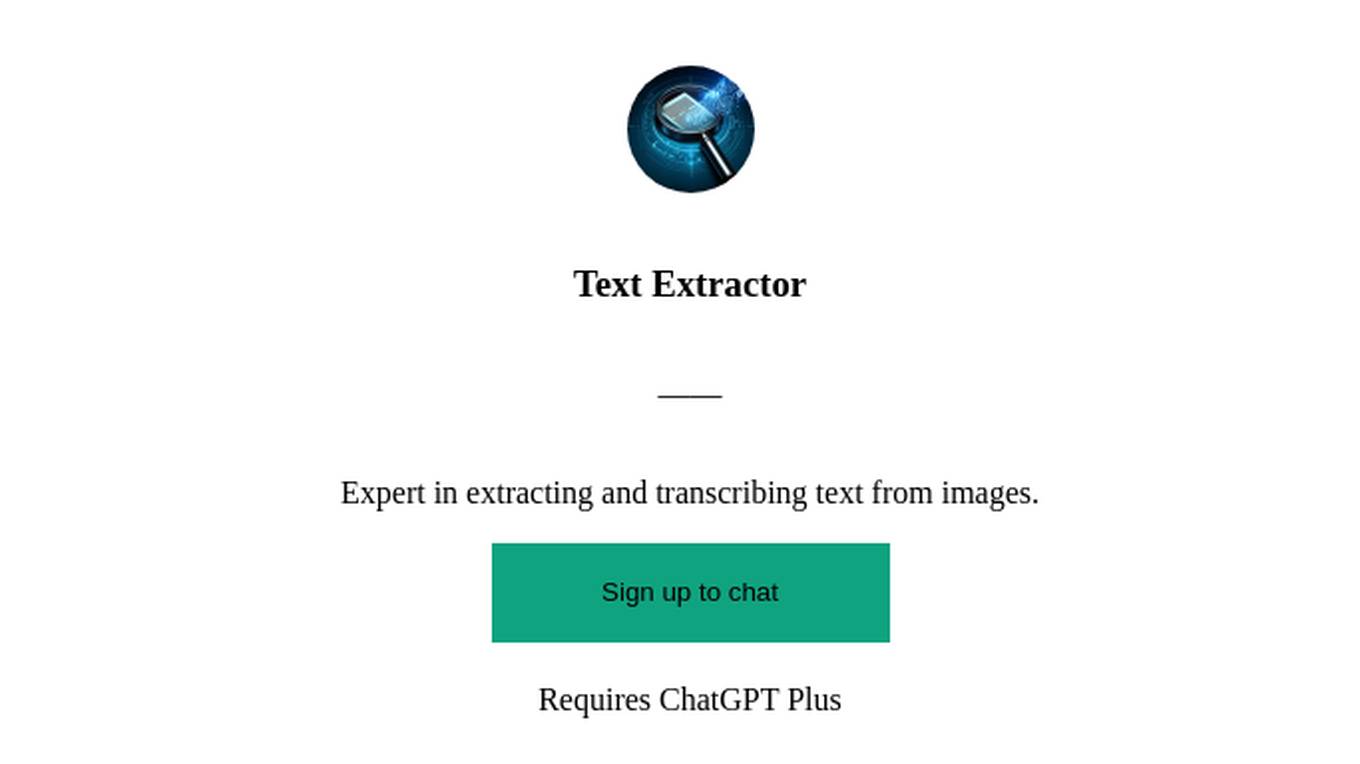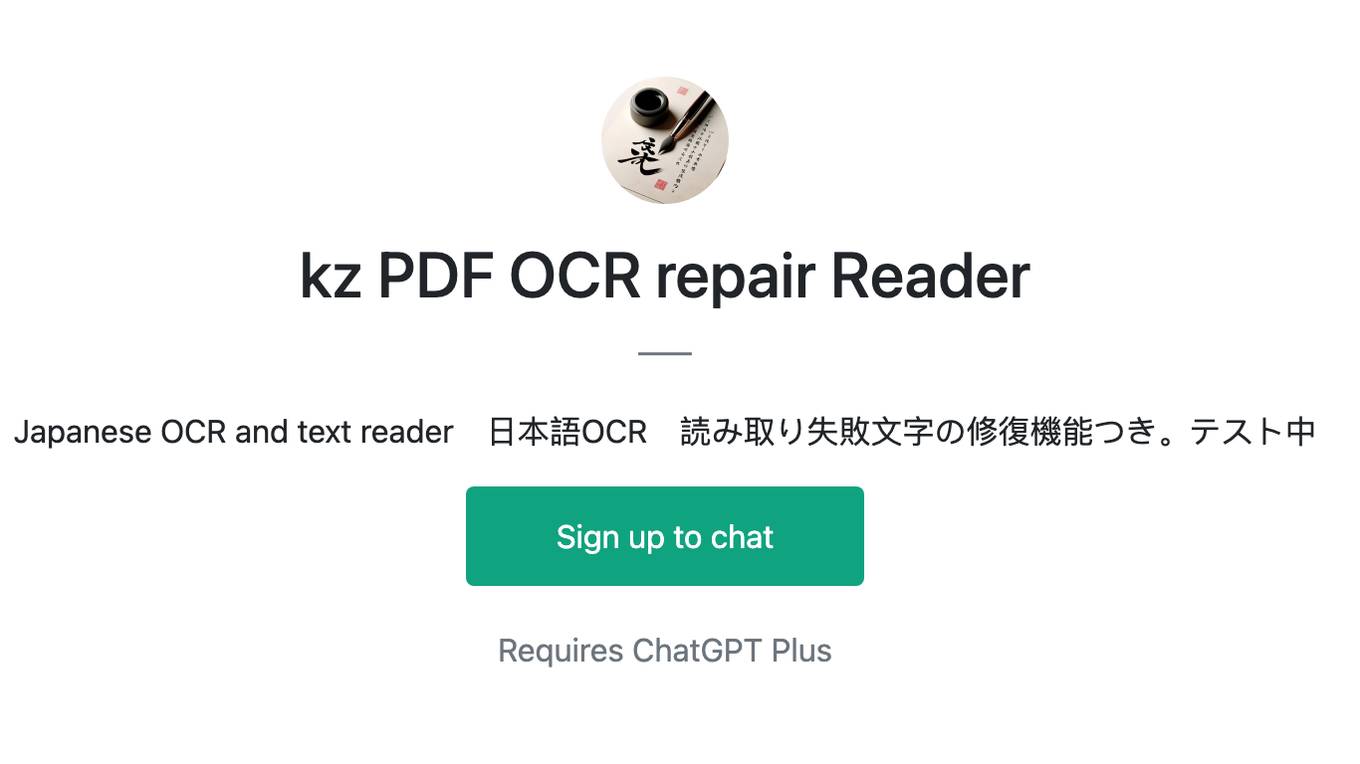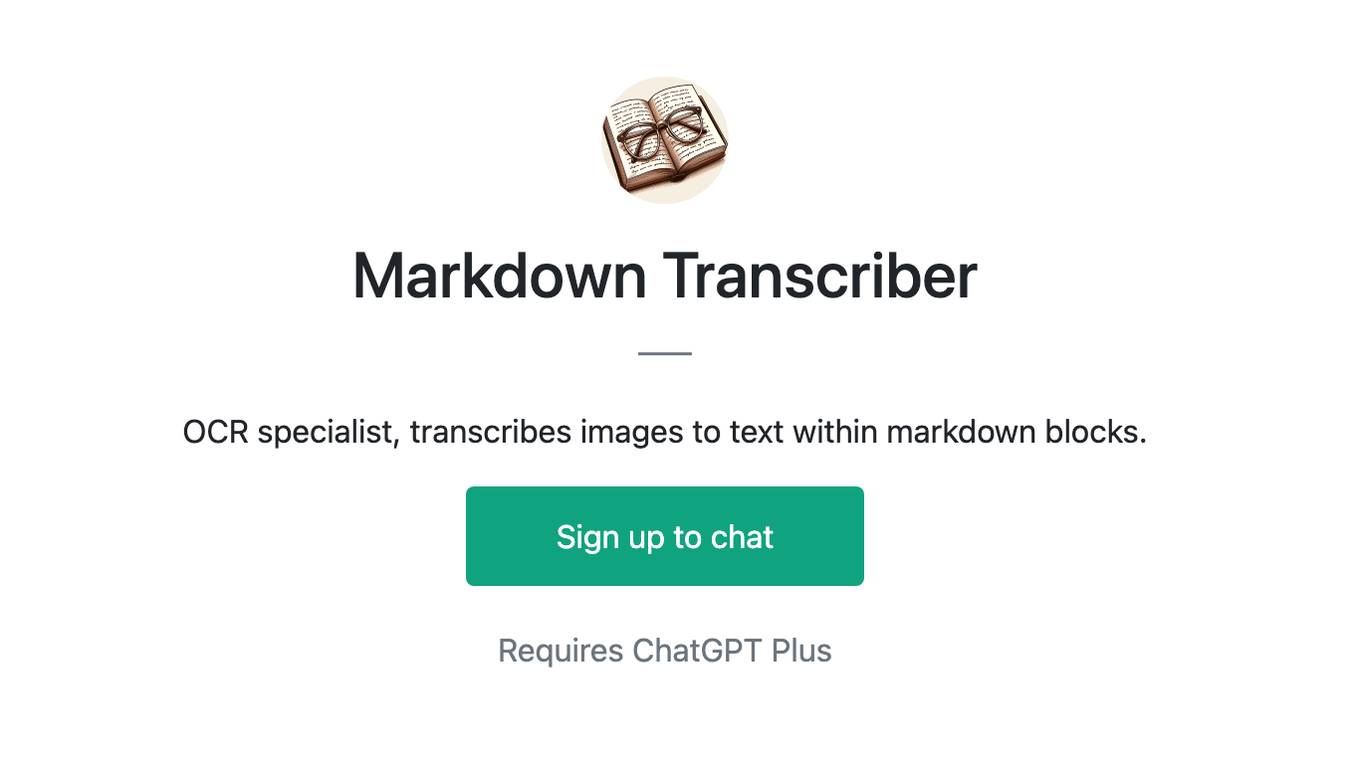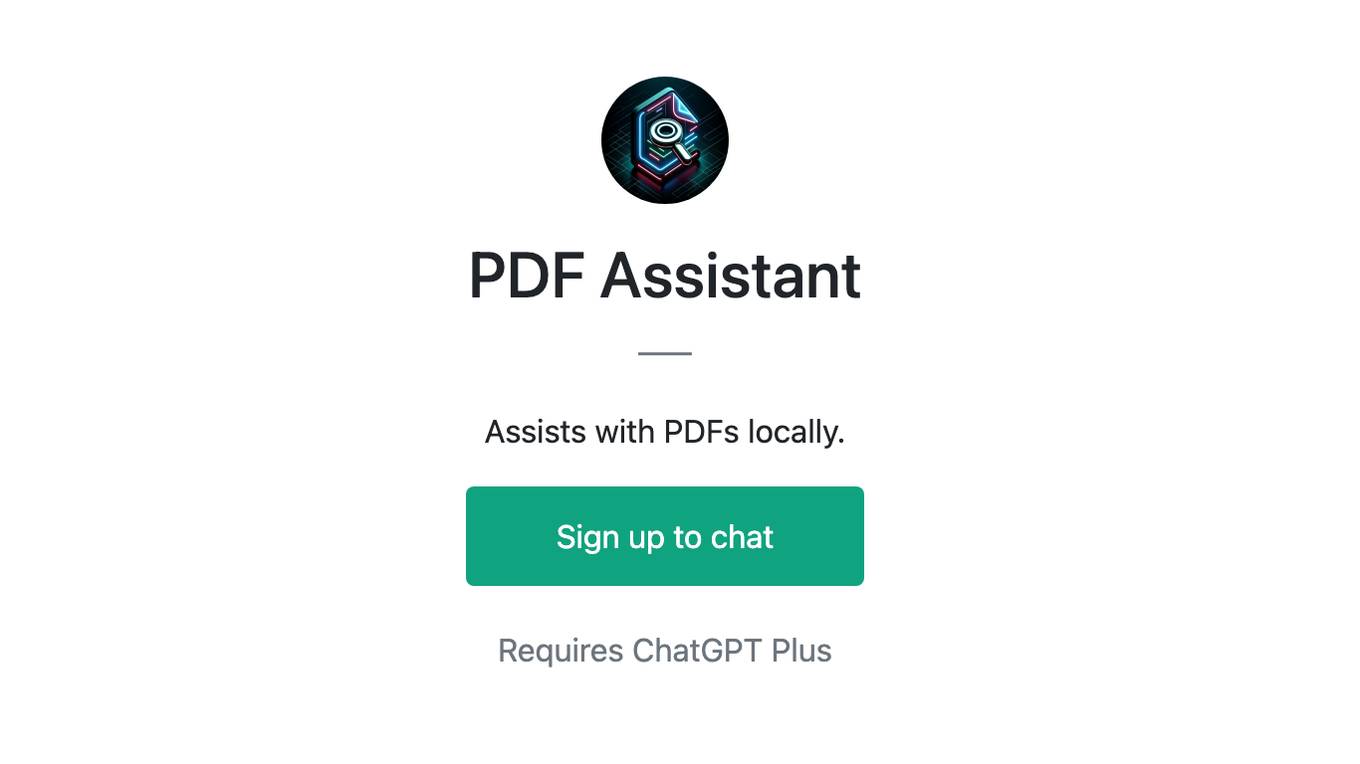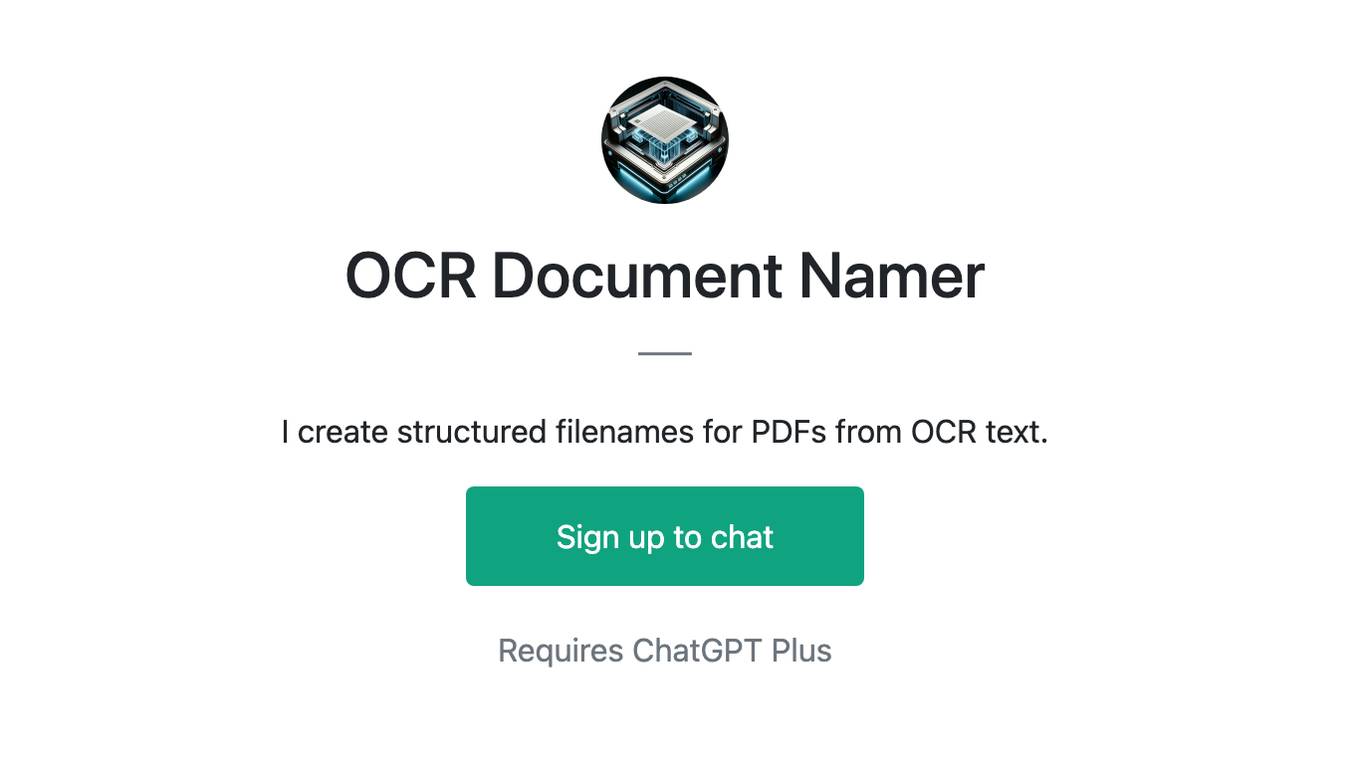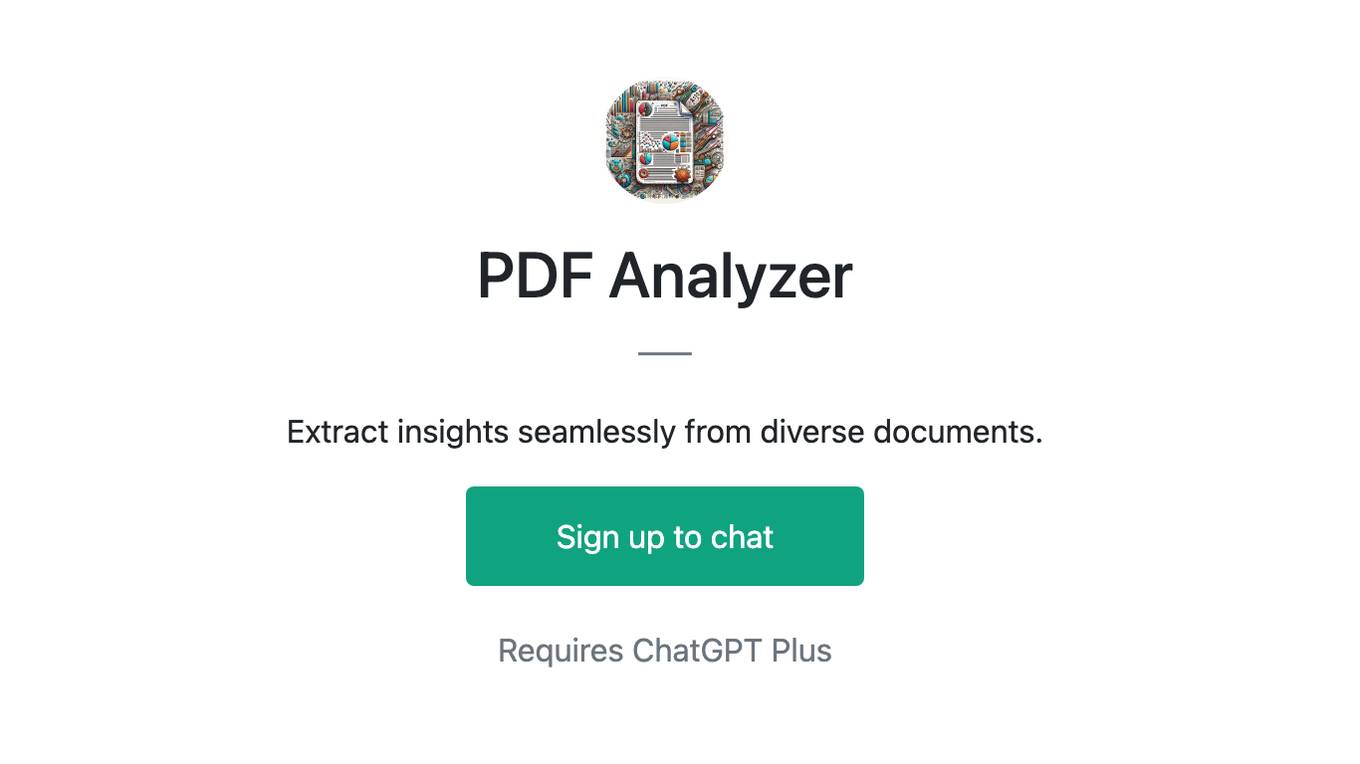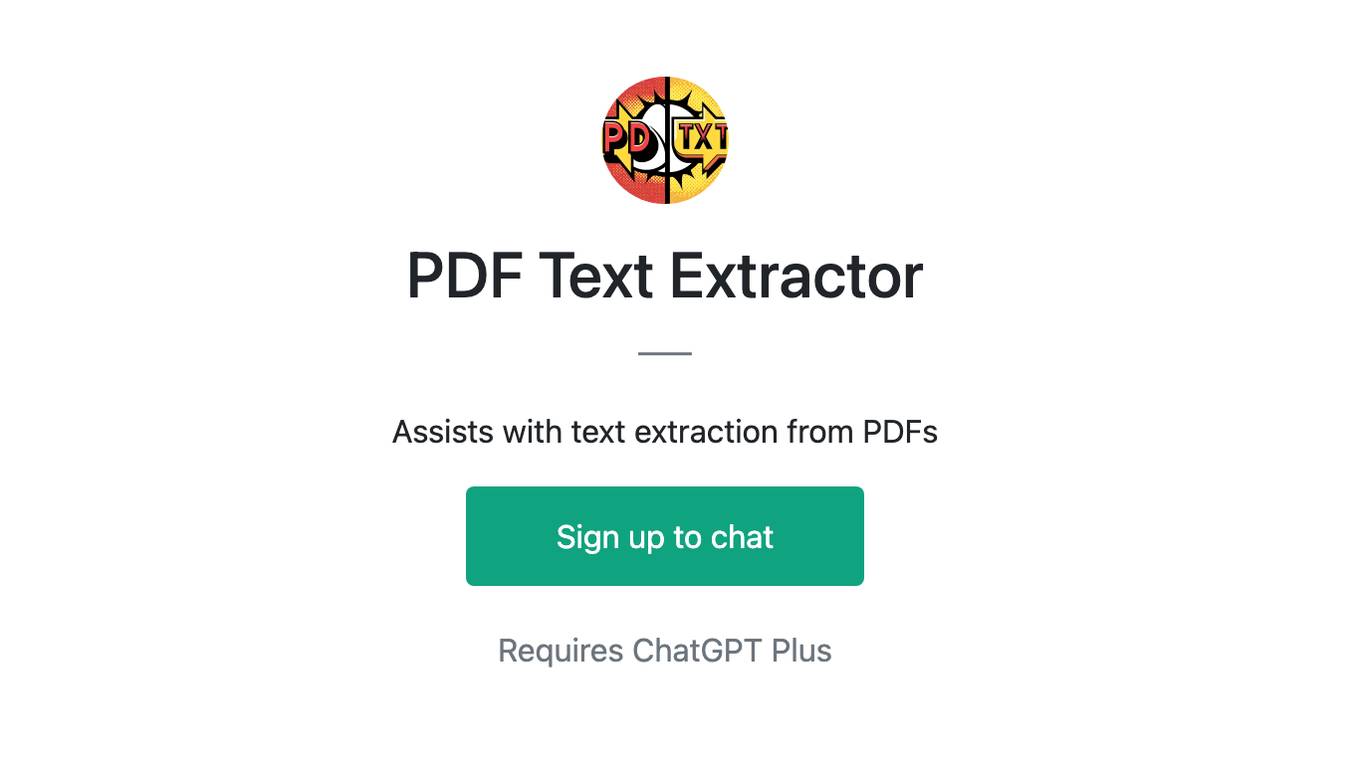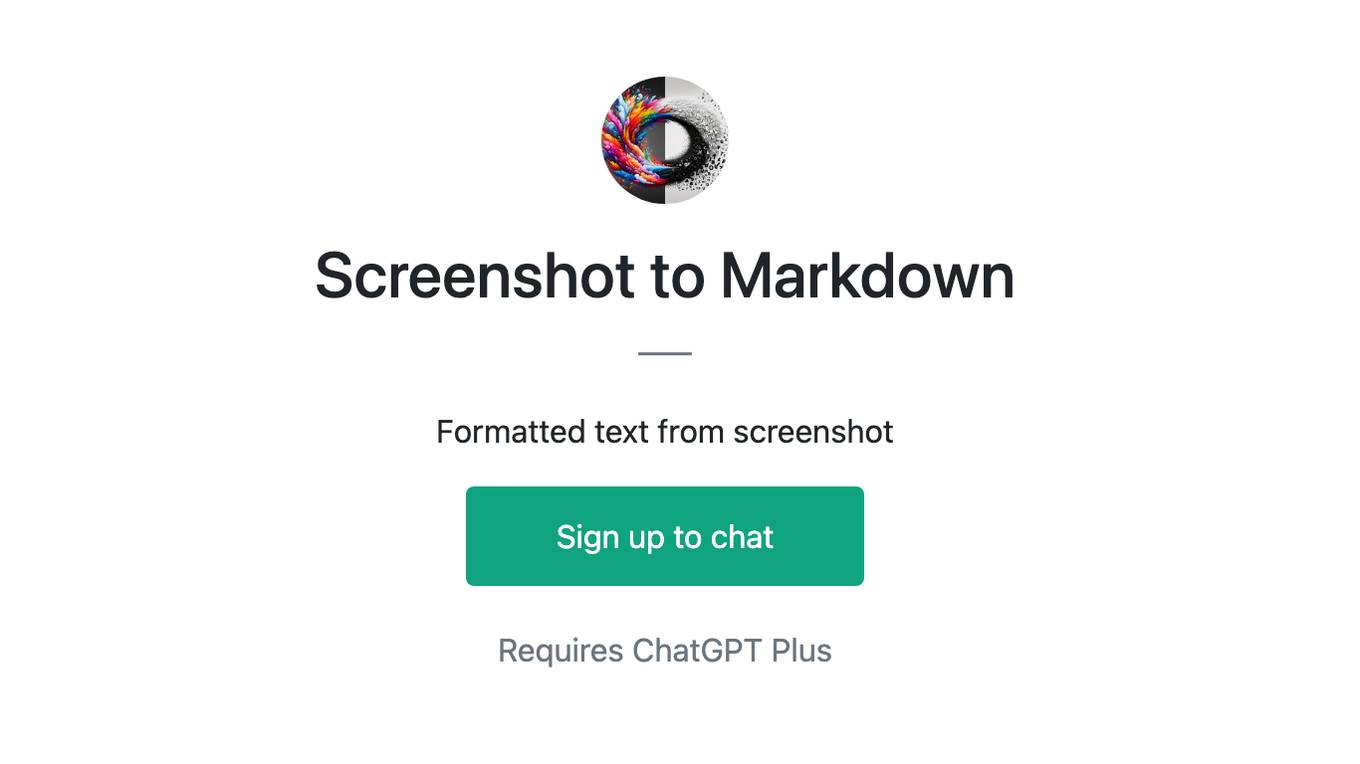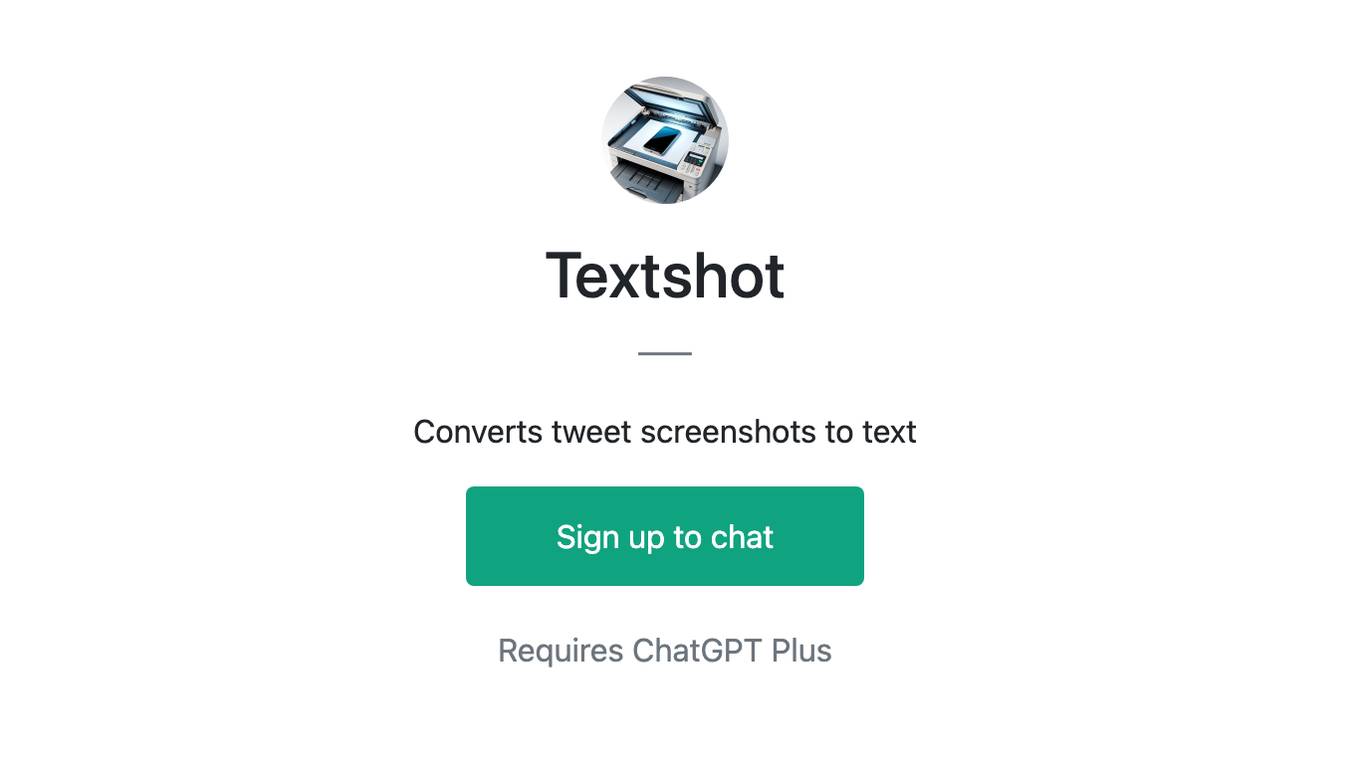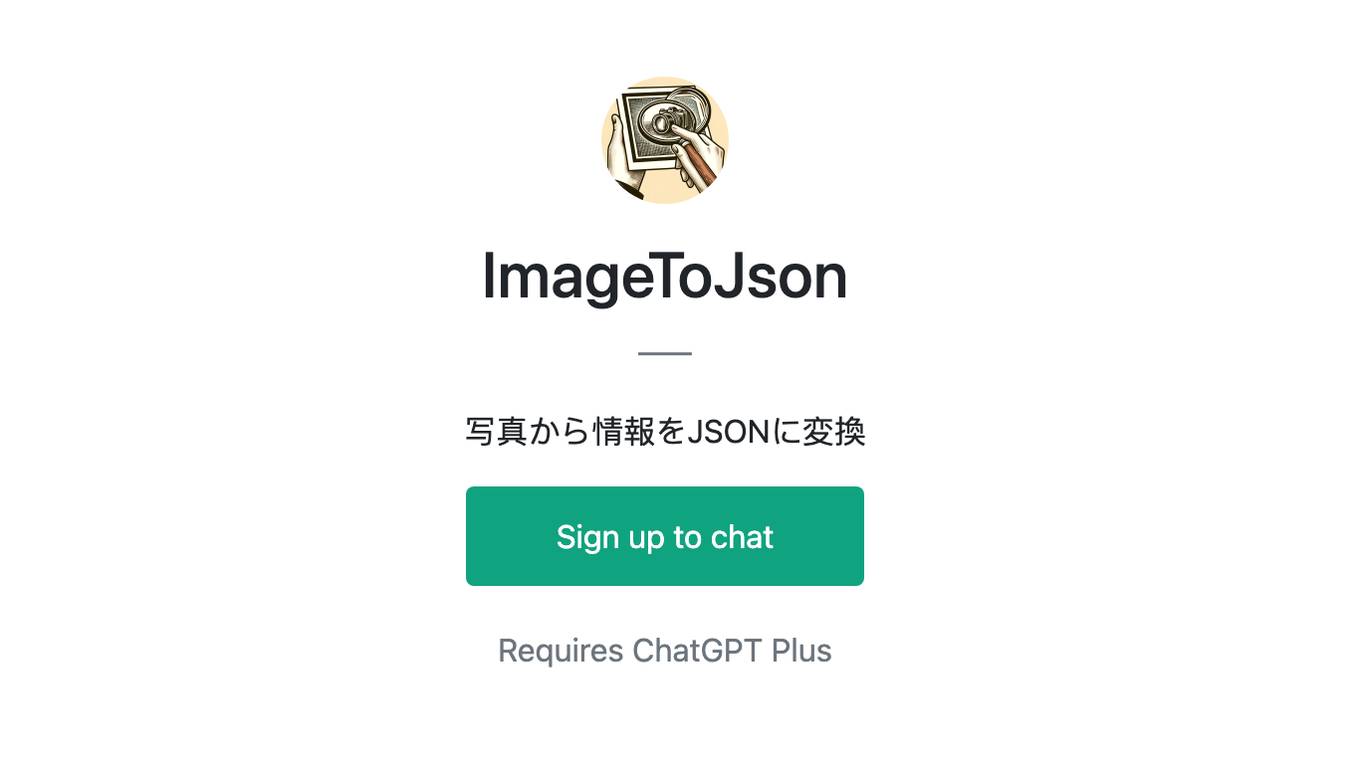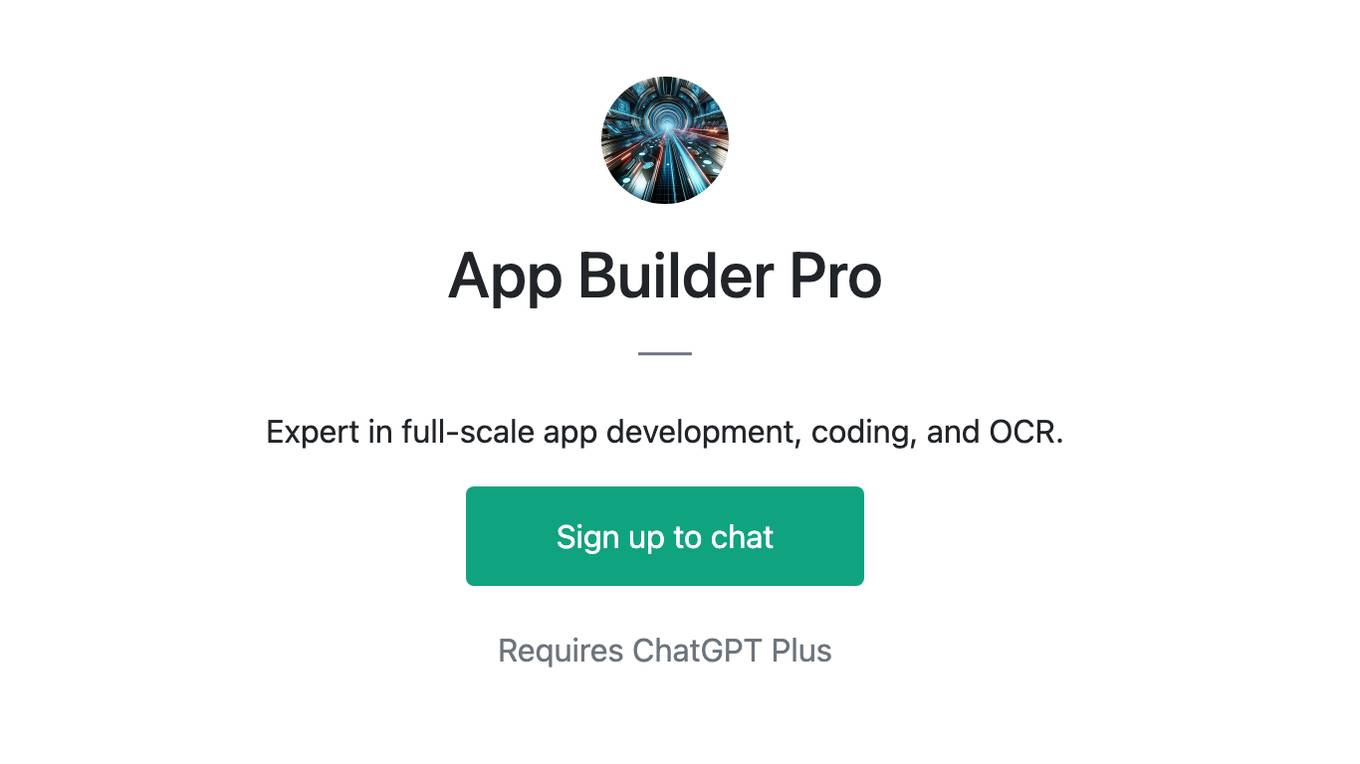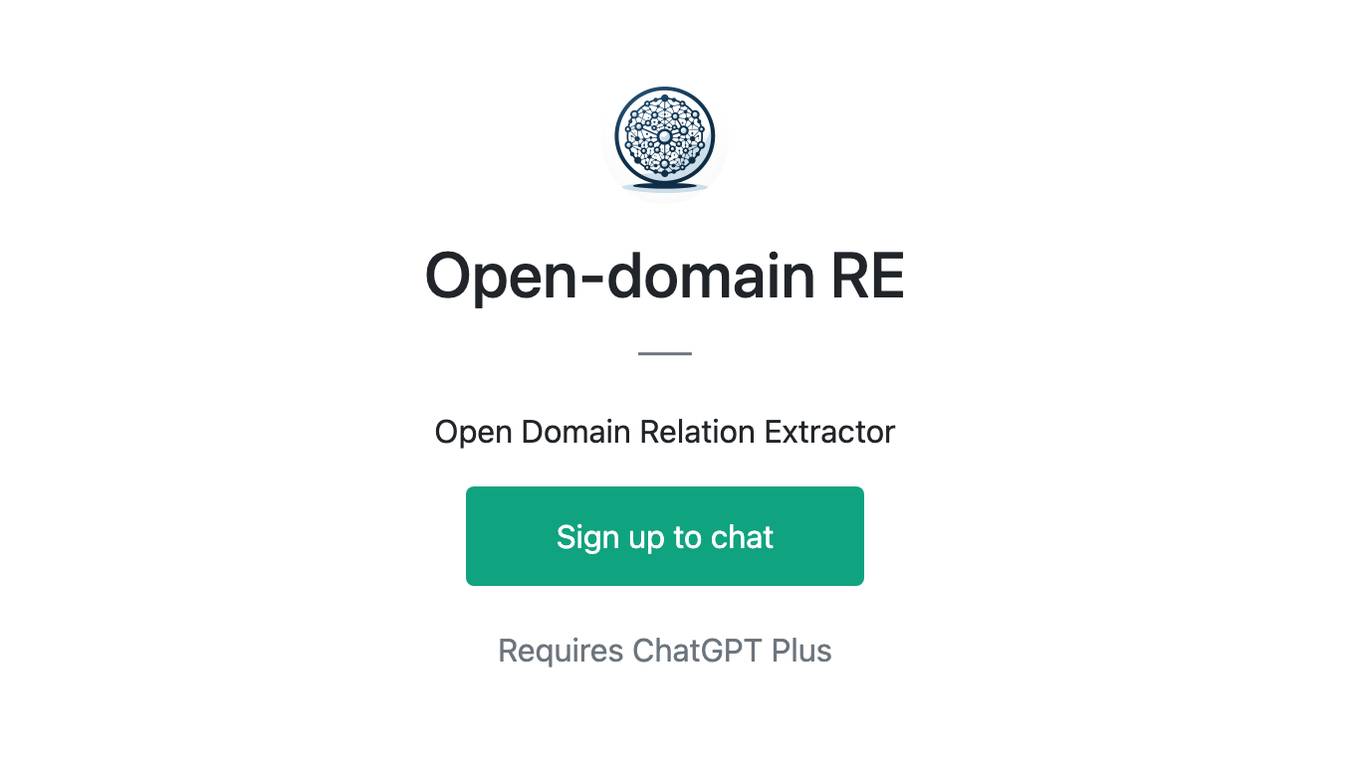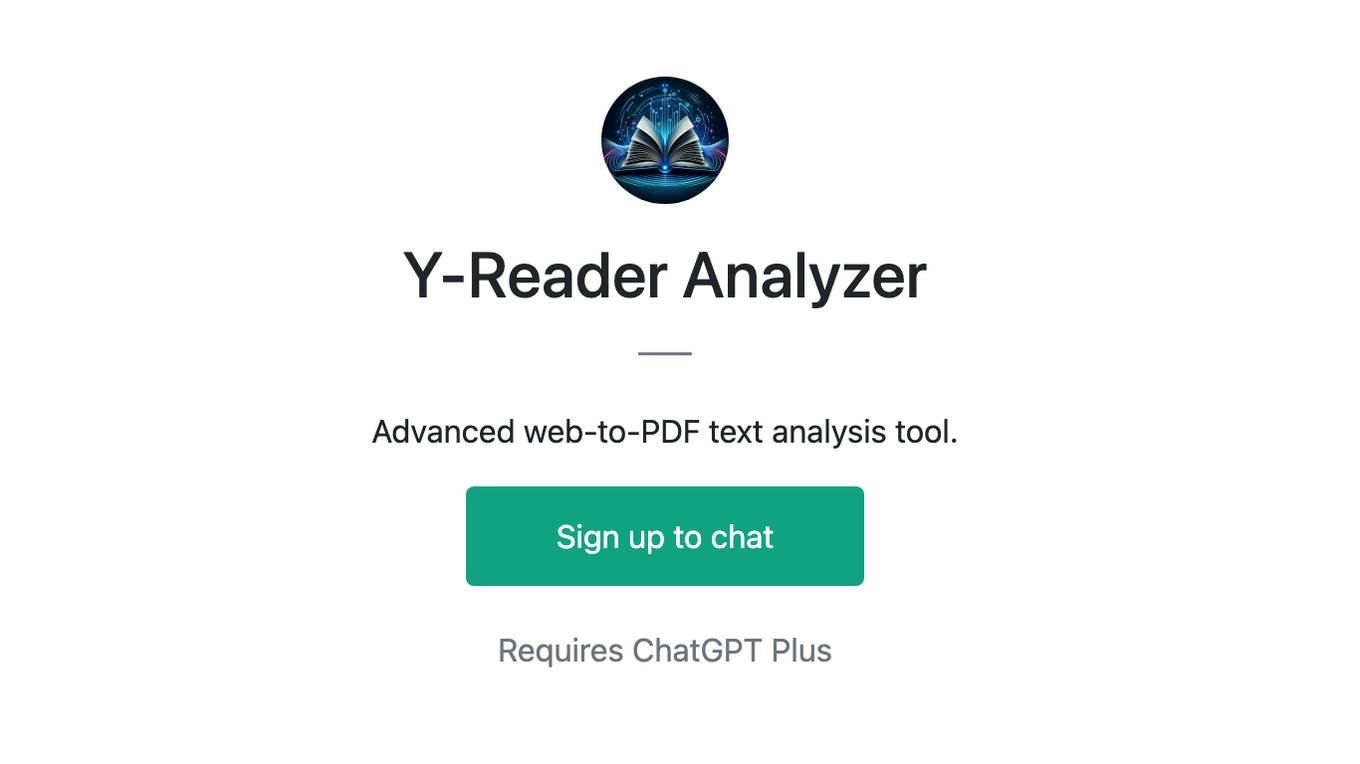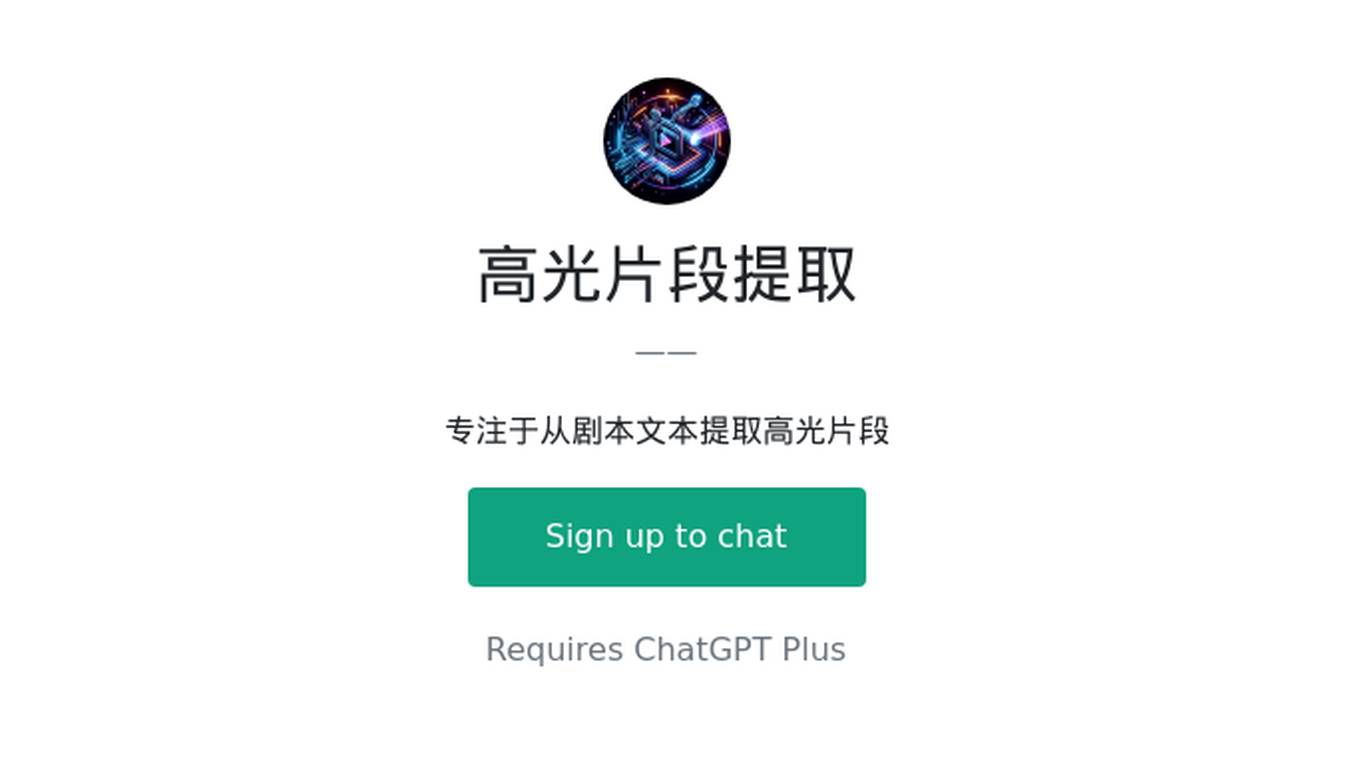Best AI tools for< Extract Text From Documents >
20 - AI tool Sites
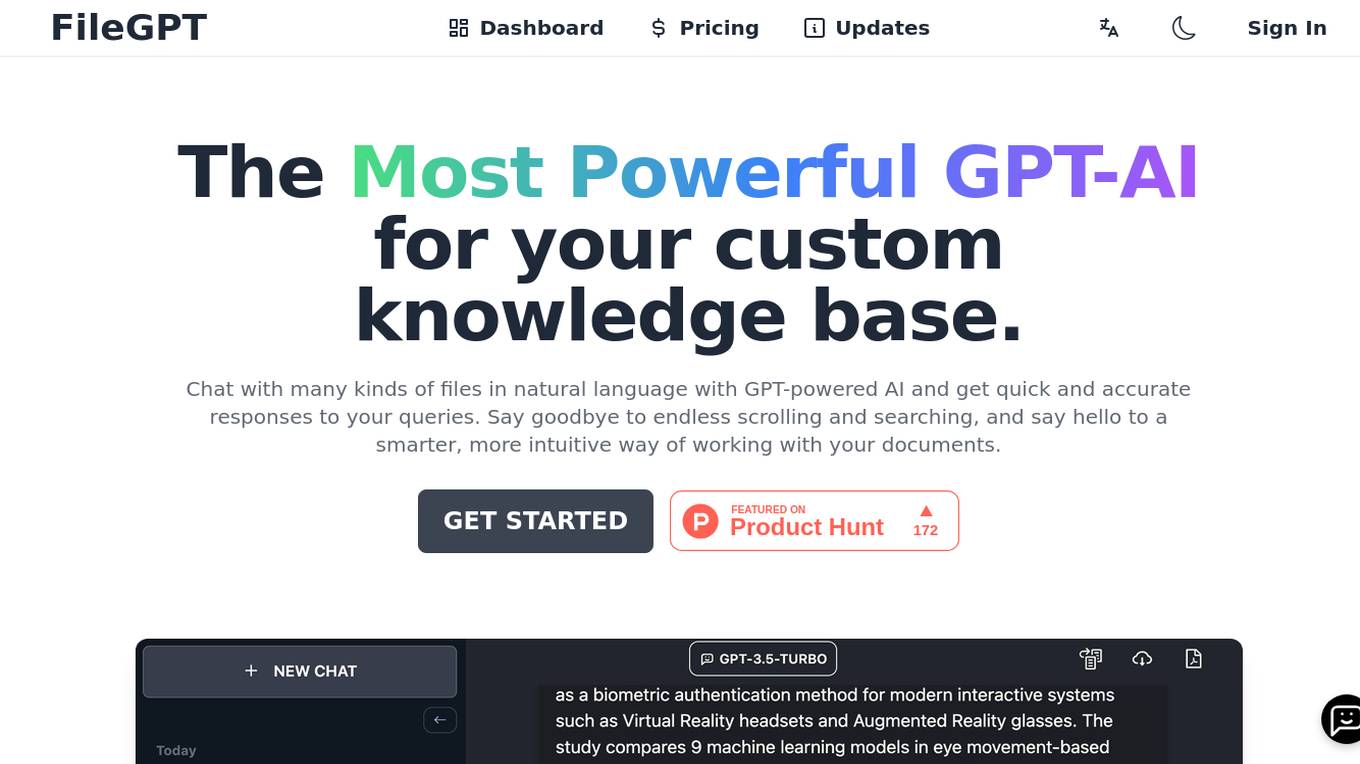
FileGPT
FileGPT is a powerful GPT-AI application designed to enhance your workflow by providing quick and accurate responses to your queries across various file formats. It allows users to interact with different types of files, extract text from handwritten documents, and analyze audio and video content. With FileGPT, users can say goodbye to endless scrolling and searching, and hello to a smarter, more intuitive way of working with their documents.
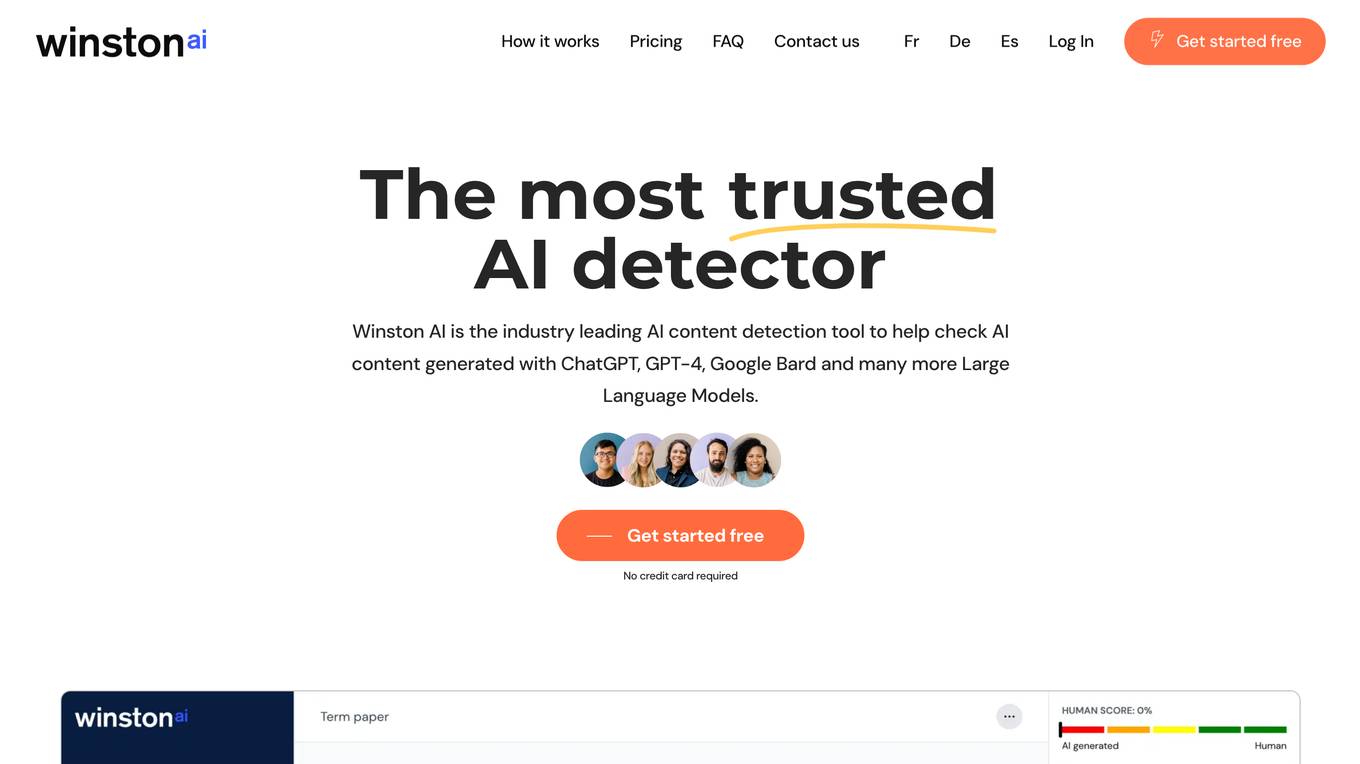
Winston AI
Winston AI is a leading AI content detection tool designed to help users identify AI-generated text from ChatGPT, GPT-4, Google Bard, and other large language models. It offers a range of features, including AI content detection, plagiarism checking, readability scoring, and OCR (Optical Character Recognition) technology for extracting text from scanned documents or pictures. Winston AI is committed to providing accurate and reliable AI detection, with a 99.98% accuracy rate and continuous updates to keep up with the latest advancements in AI writing tools.
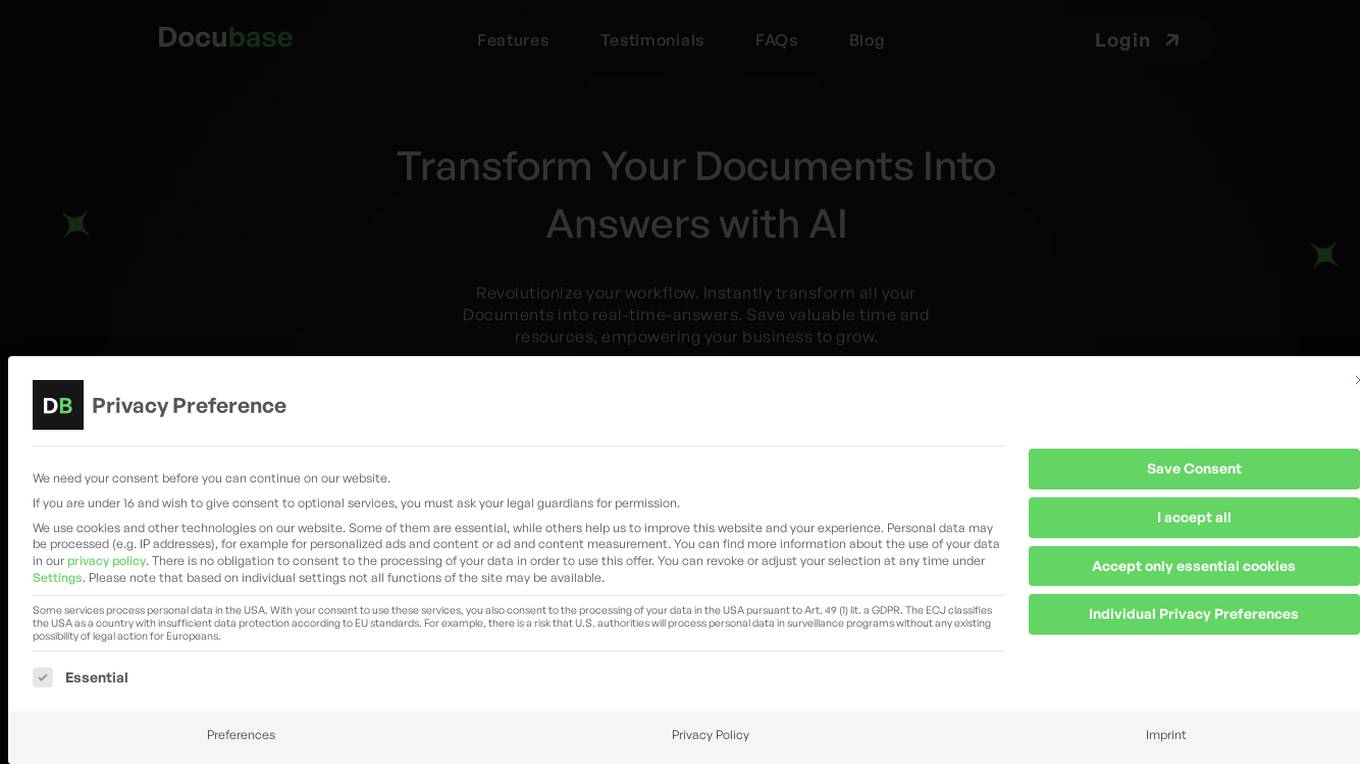
Docubase.ai
Docubase.ai is a powerful document analysis tool that uses advanced natural language processing and machine learning to extract information and provide relevant answers to your queries. It can automatically extract text content from uploaded documents, generate relevant questions, and extract answers from the document content. Docubase.ai supports a wide range of document formats, including PDF, Word, Excel, PowerPoint, and text documents. It also allows users to ask their own questions and provides options to export answers in different formats for easy sharing and documentation.
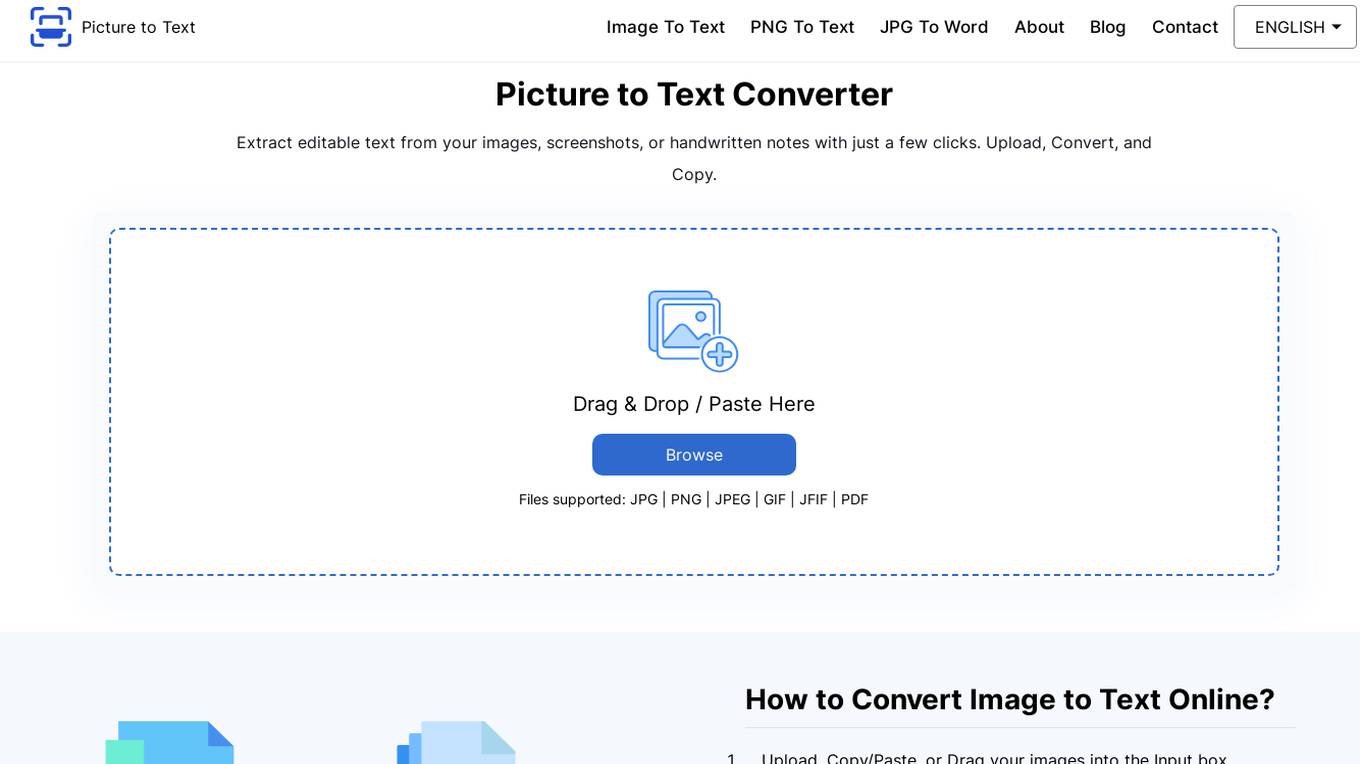
Picture to Text Converter
Picture to Text Converter is an online tool that uses Optical Character Recognition (OCR) technology to extract text from images. It can process various image formats like JPG, PNG, GIF, scanned documents (PDFs), and even photos taken with your phone's camera. The extracted text can be copied to the clipboard or downloaded as a TXT file. Picture to Text Converter is free to use and does not require any registration or installation. It is a convenient and efficient way to convert images into editable text.
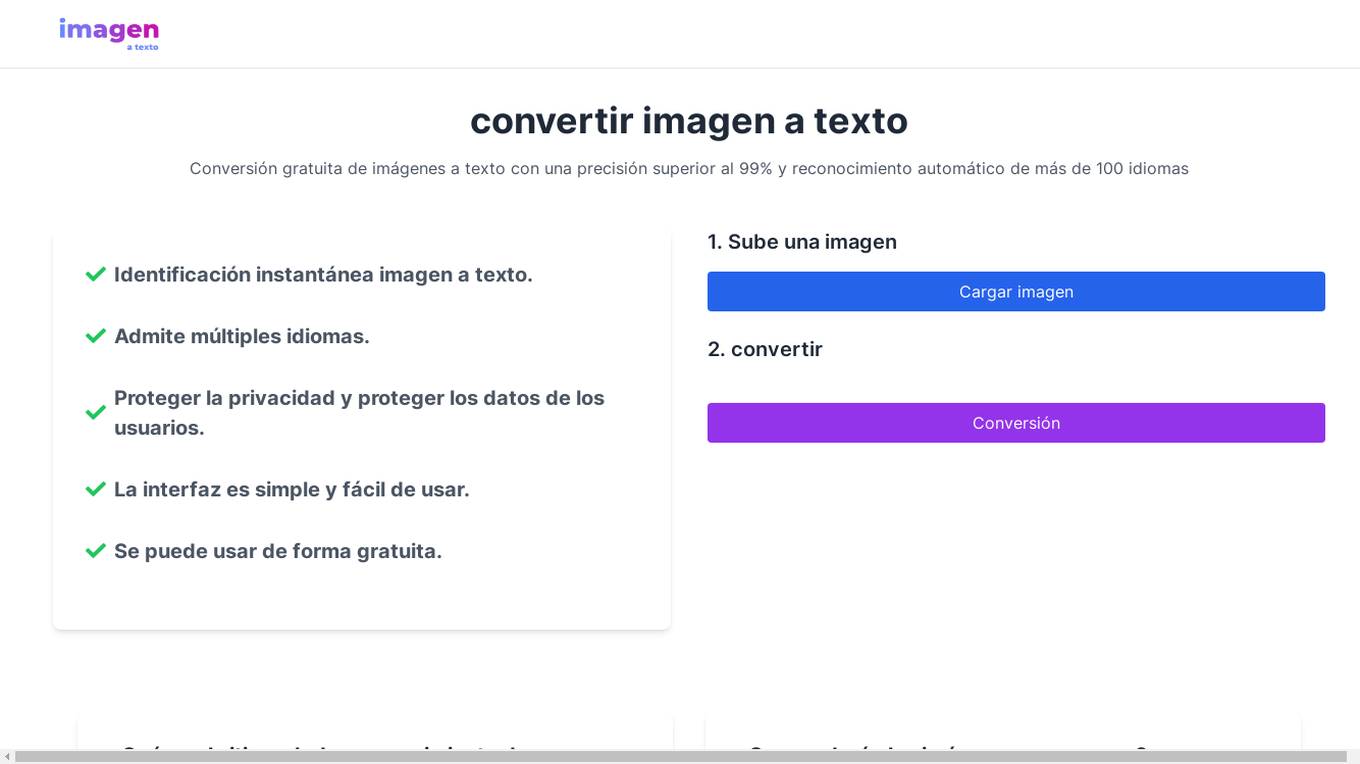
Woy AI Tools
Woy AI Tools is an online tool that offers free image to text conversion with over 99% accuracy and automatic recognition of more than 100 languages. Users can easily upload an image and receive the textual information contained within it. The tool supports multiple languages, prioritizes user privacy and data protection, has a simple and user-friendly interface, and is available for free usage. It utilizes advanced machine learning and OCR technology to continuously optimize recognition algorithms for clear and high-resolution images.
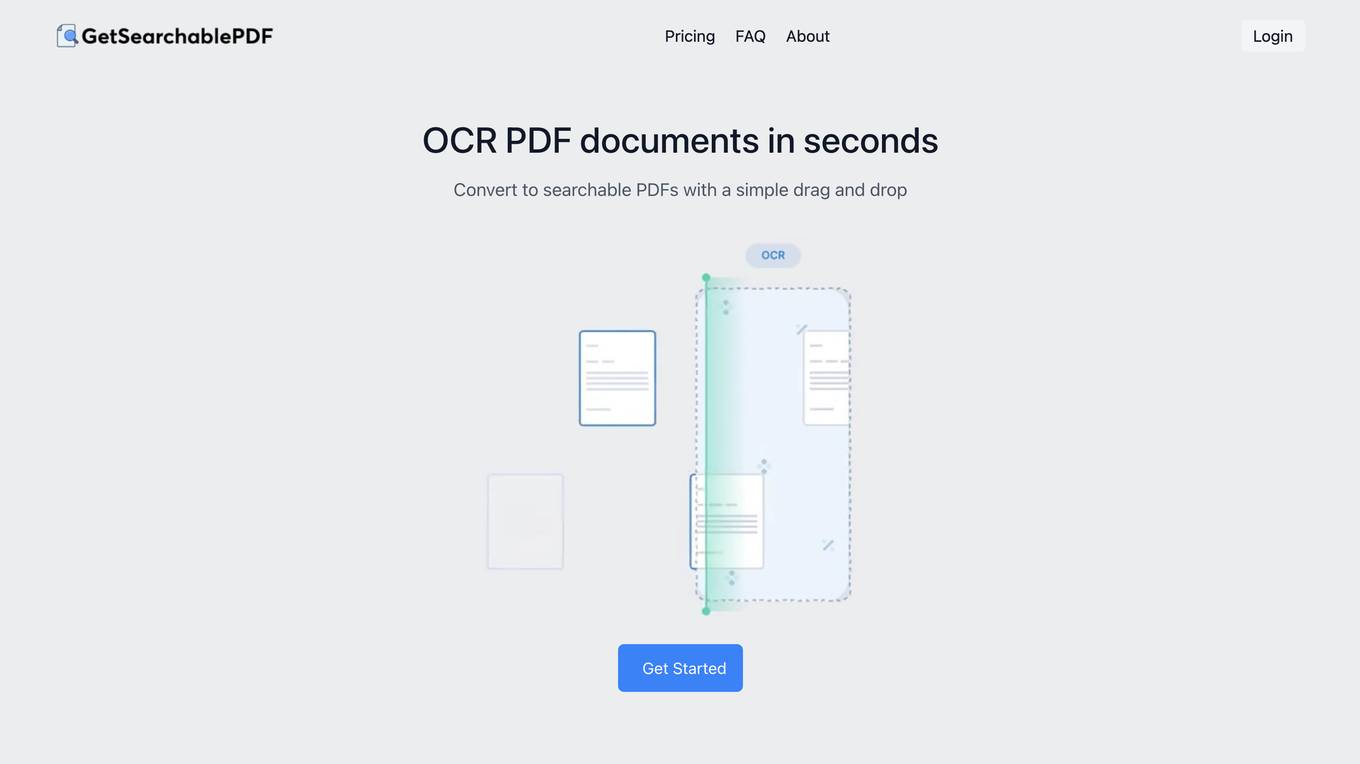
GetSearchablePDF
GetSearchablePDF is an online tool that allows users to convert scanned or image-based PDF documents into searchable PDFs. With its advanced OCR (Optical Character Recognition) technology, the tool accurately extracts text from images, making the resulting PDFs easy to search, edit, and share. The process is simple and straightforward: users simply connect their Dropbox or OneDrive account, drag and drop their PDF files into the designated folder, and the tool automatically converts them into searchable PDFs.
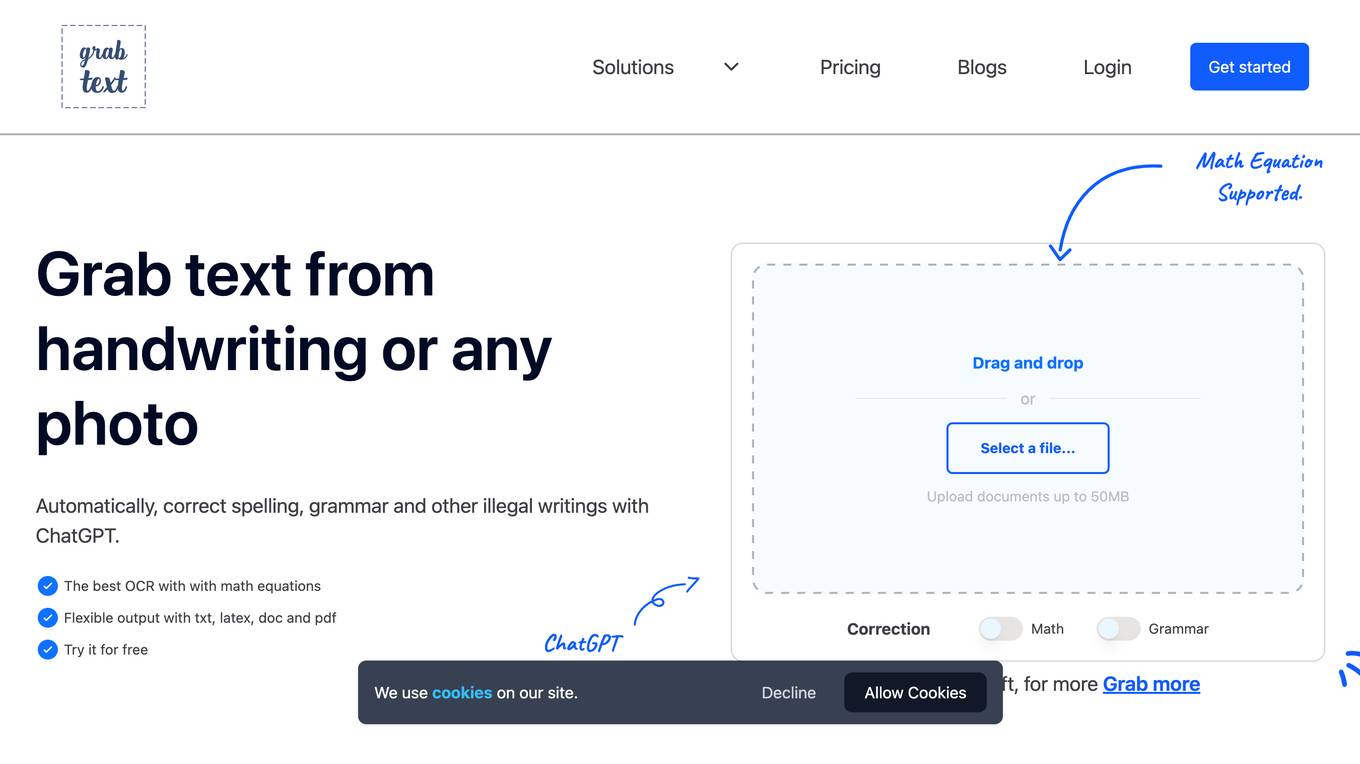
GrabText
GrabText is an online OCR tool that allows users to convert handwritten or printed text from photos, graphics, or documents into editable text. It uses ChatGPT to automatically correct spelling, grammar, and other illegal writings. The tool also supports math equations and offers flexible output options such as txt, latex, doc, and pdf.
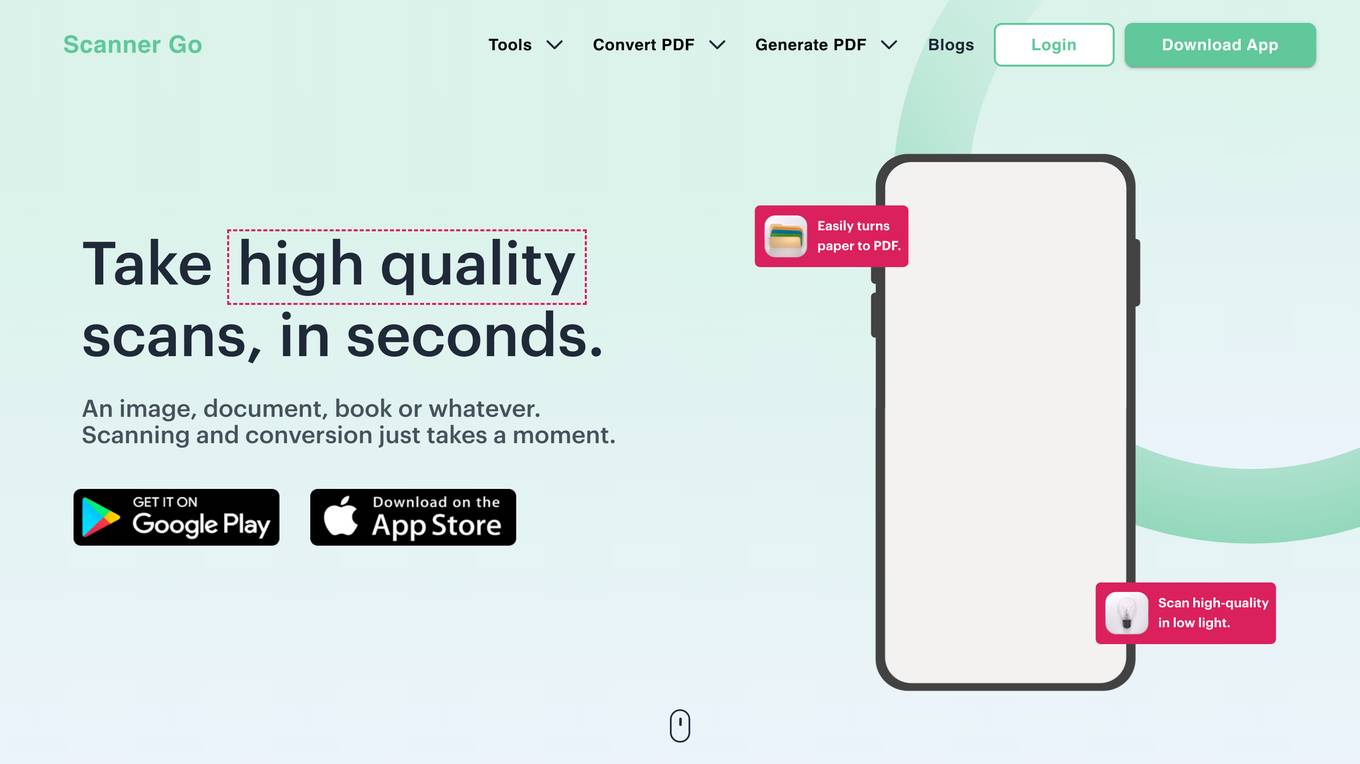
Scanner Go
Scanner Go is a free PDF tool that offers easy-to-use features for high-quality scanning and conversion of various documents into PDF format. With powerful OCR technology, it allows users to extract text from PDFs and images, making it convenient to edit and share documents. The tool also provides options for managing, editing, printing, and sharing documents, enhancing productivity. Additionally, Scanner Go offers a range of popular tools for converting, optimizing, and securing PDF files, catering to diverse user needs.
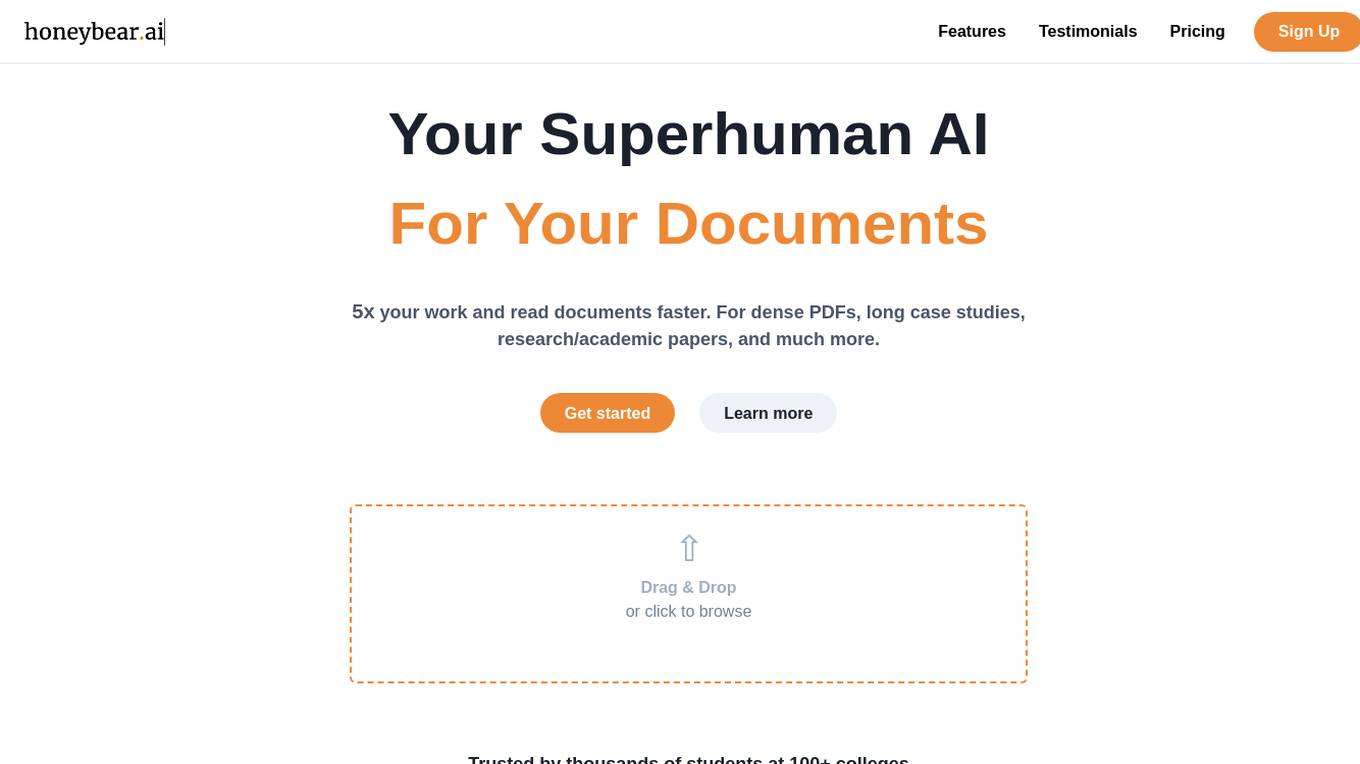
Honeybear.ai
Honeybear.ai is an AI tool designed to simplify document reading tasks. It utilizes advanced algorithms to extract and analyze text from various documents, making it easier for users to access and comprehend information. With Honeybear.ai, users can streamline their document processing workflows and enhance productivity.
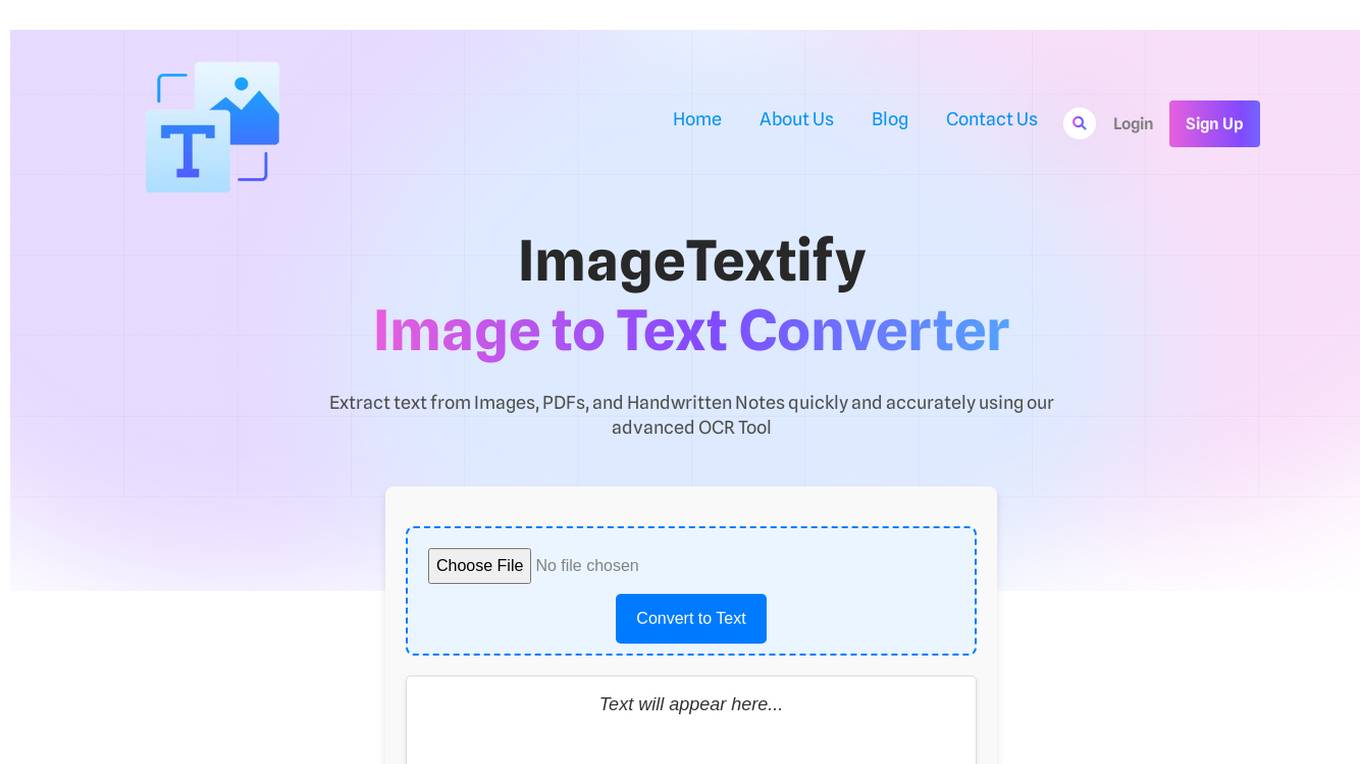
ImageTextify
ImageTextify is a free, AI-powered OCR tool that enables users to extract text from images, PDFs, and handwritten notes with high accuracy and efficiency. The tool offers a wide range of features, including multi-format support, batch processing, and a mobile-friendly interface. ImageTextify is designed to cater to both personal and professional needs, providing a seamless solution for converting images to text. With a focus on privacy, speed, and support for multiple languages and formats, ImageTextify stands out as a reliable and user-friendly OCR tool.
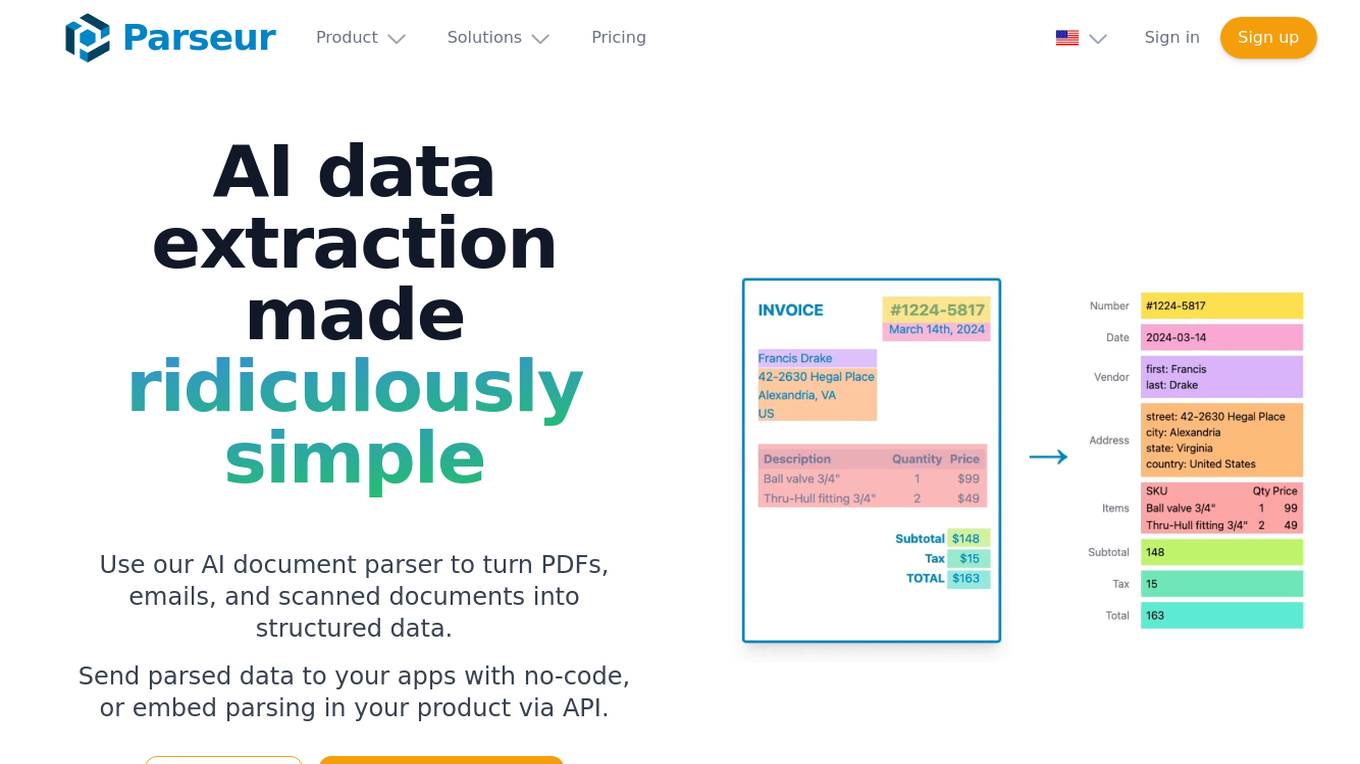
Parseur
Parseur is an AI data extraction software that uses artificial intelligence to extract structured data from various types of documents such as PDFs, emails, and scanned documents. It offers features like template-based data extraction, OCR software for character recognition, and dynamic OCR for extracting fields that move or change size. Parseur is trusted by businesses in finance, tech, logistics, healthcare, real estate, e-commerce, marketing, and human resources industries to automate data extraction processes, saving time and reducing manual errors.
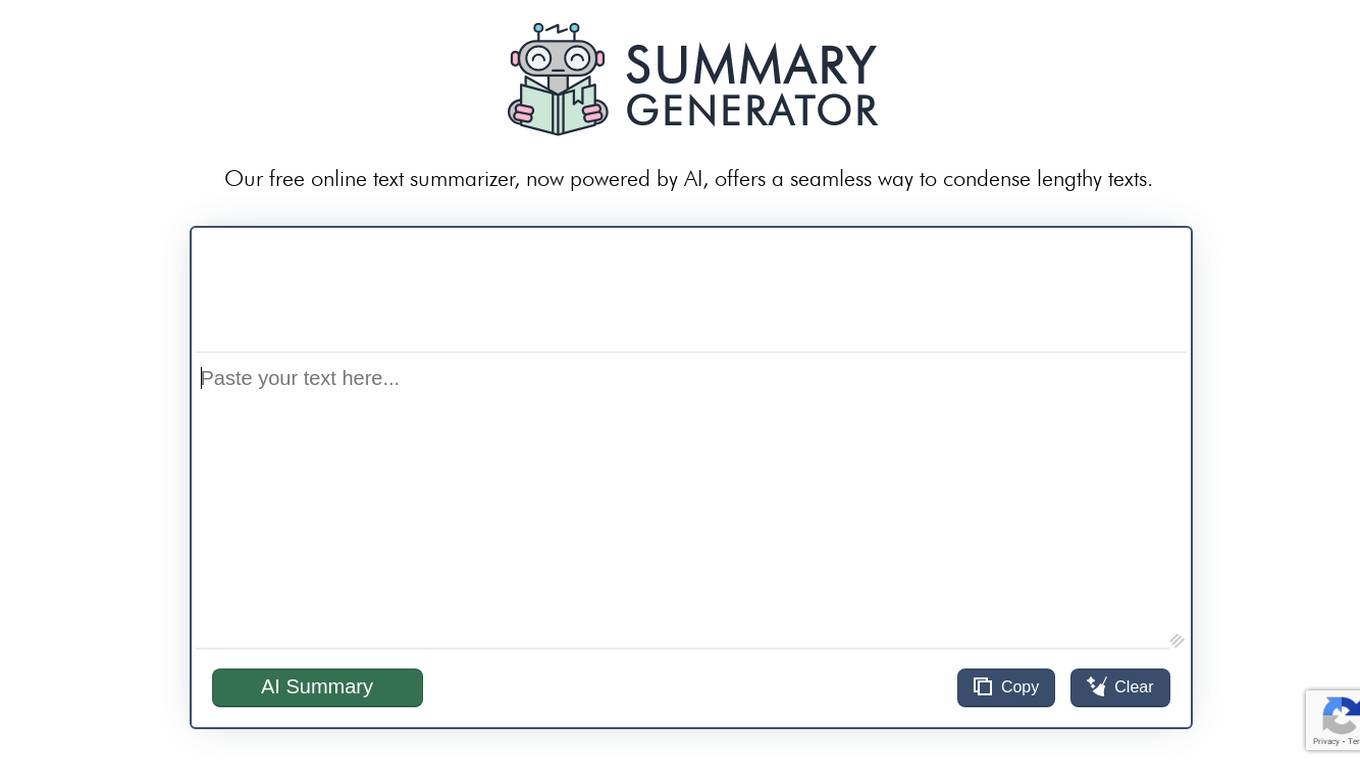
Text Summarizer
The website offers a free online text summarizer powered by AI, designed to condense lengthy texts efficiently. It caters to professionals, students, and researchers who need to extract key details from documents. The tool utilizes advanced AI algorithms to provide users with essential information quickly, enhancing learning and productivity. Users can easily summarize text by pasting it into the tool, generating clear and concise summaries for research or quick information retrieval. The AI-enhanced tool aims to improve efficiency in processing large volumes of text.
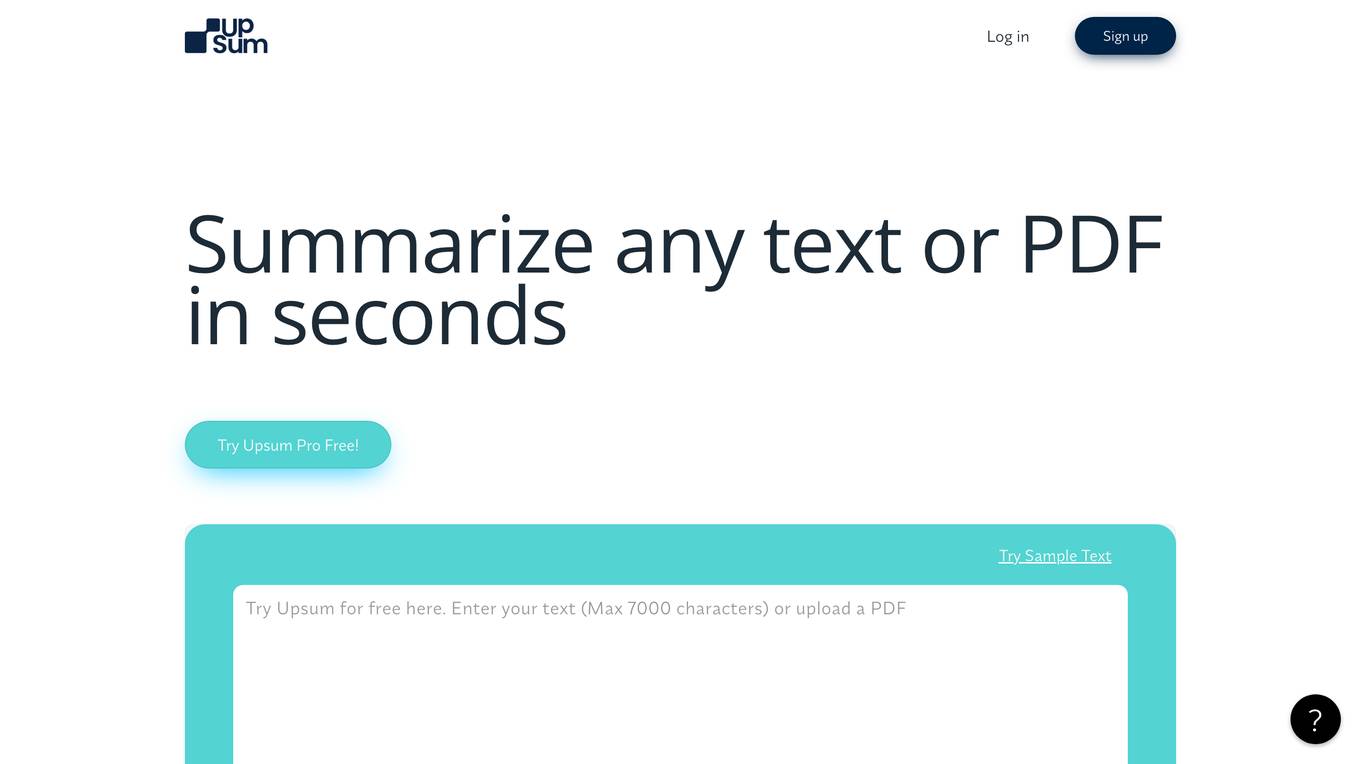
UpSum
UpSum is a text summarization tool that uses advanced AI technology to condense lengthy texts into concise summaries. It is designed to save users time and effort by extracting the key points and insights from documents, research papers, news articles, and other written content. UpSum's AI algorithm analyzes the text, identifies the most important sentences and phrases, and assembles them into a coherent summary that accurately represents the main ideas and key takeaways of the original text. The tool is easy to use, simply upload or paste your text, select the desired summary length, and click the summarize button. UpSum is available as a free web-based tool, as well as a premium subscription with additional features and capabilities.

AlphaResearch
AlphaResearch is an AI-powered search engine and research platform for investors. It provides access to millions of global filings, transcripts, press releases, and reports, and uses machine learning and NLP techniques to extract insights from text data. AlphaResearch helps investors save time on research, understand market sentiment, and make better investment decisions.
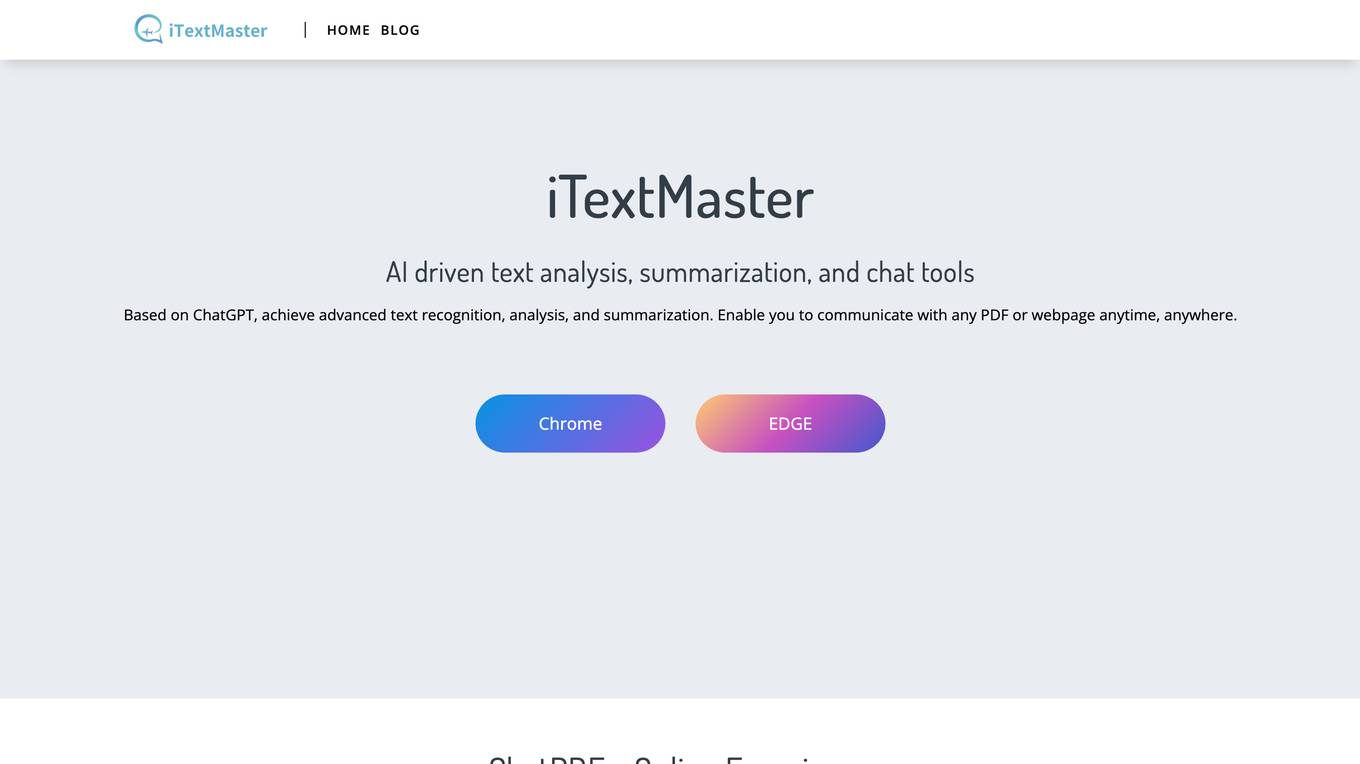
iTextMaster
iTextMaster is an AI-powered tool that allows users to analyze, summarize, and chat with text-based documents, including PDFs and web pages. It utilizes ChatGPT technology to provide intelligent answers to questions and extract key information from documents. The tool is designed to simplify text processing, improve understanding efficiency, and save time. iTextMaster supports multiple languages and offers a user-friendly interface for easy navigation and interaction.
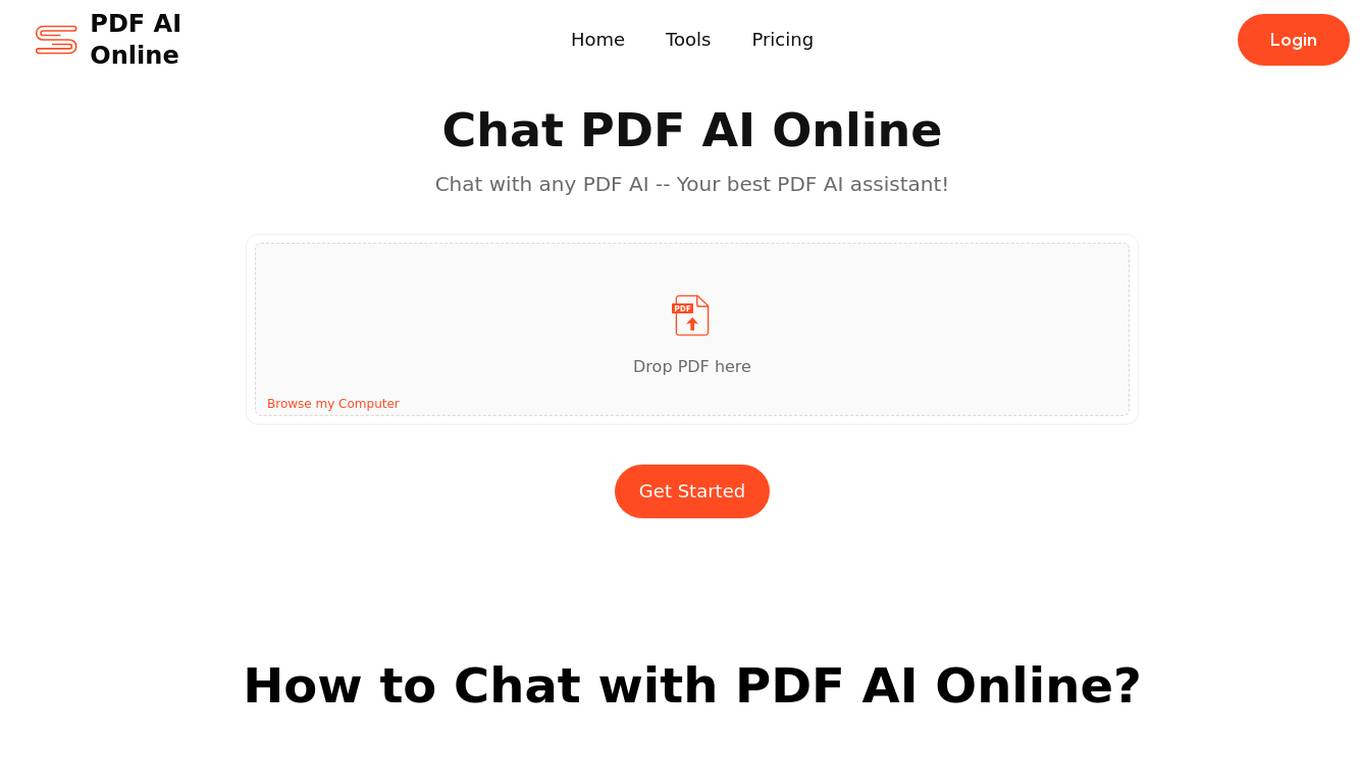
Chat PDF AI Online
Chat PDF AI Online is an advanced AI tool that revolutionizes the way users interact with PDF documents. It offers cutting-edge AI features to enhance the PDF experience, providing seamless solutions for reading, summarizing, analyzing, and translating PDF files. With features like longer context support, powerful tabular data analysis, and advanced LLM support, Chat PDF AI Online ensures smarter and faster document processing. Users can securely upload and process large PDF files, benefiting from high accuracy and efficiency in document handling.
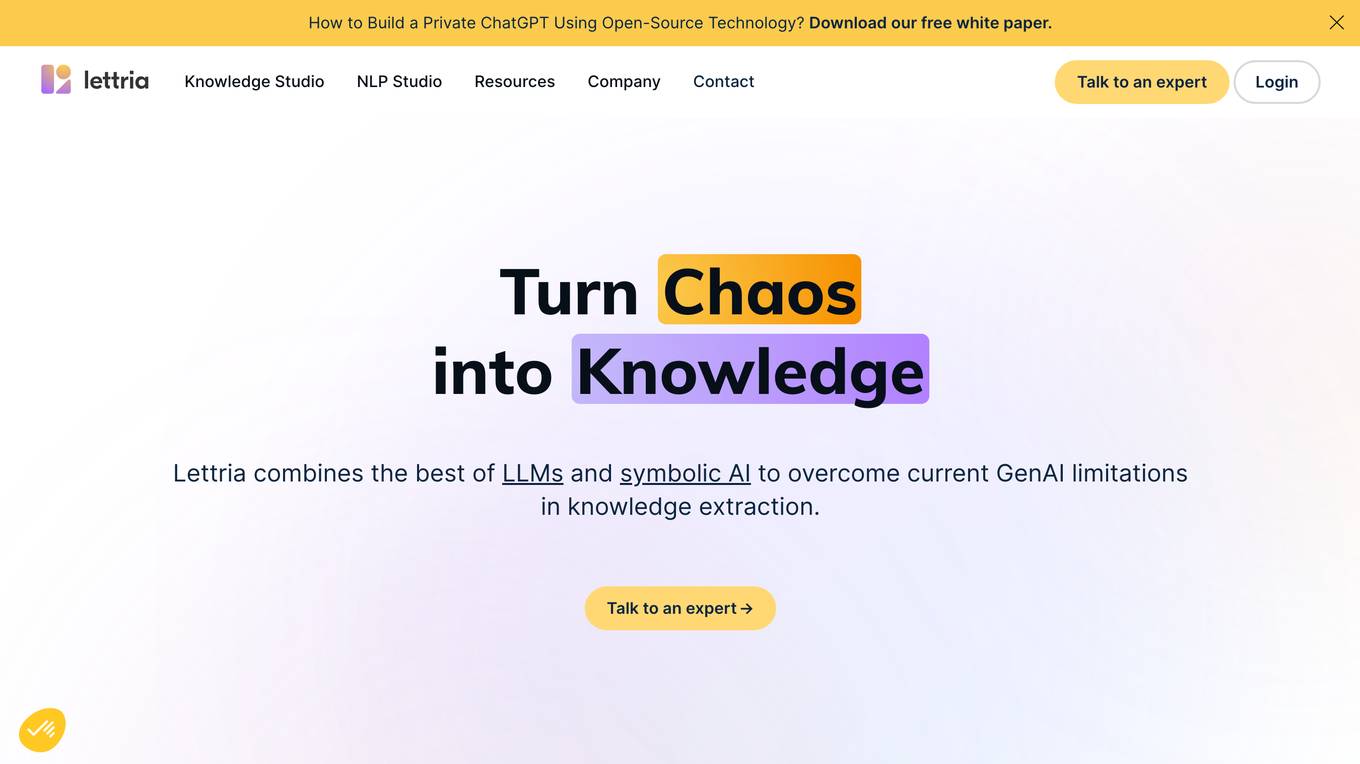
Lettria
Lettria is a no-code AI platform for text that helps users turn unstructured text data into structured knowledge. It combines the best of Large Language Models (LLMs) and symbolic AI to overcome current limitations in knowledge extraction. Lettria offers a suite of APIs for text cleaning, text mining, text classification, and prompt engineering. It also provides a Knowledge Studio for building knowledge graphs and private GPT models. Lettria is trusted by large organizations such as AP-HP and Leroy Merlin to improve their data analysis and decision-making processes.
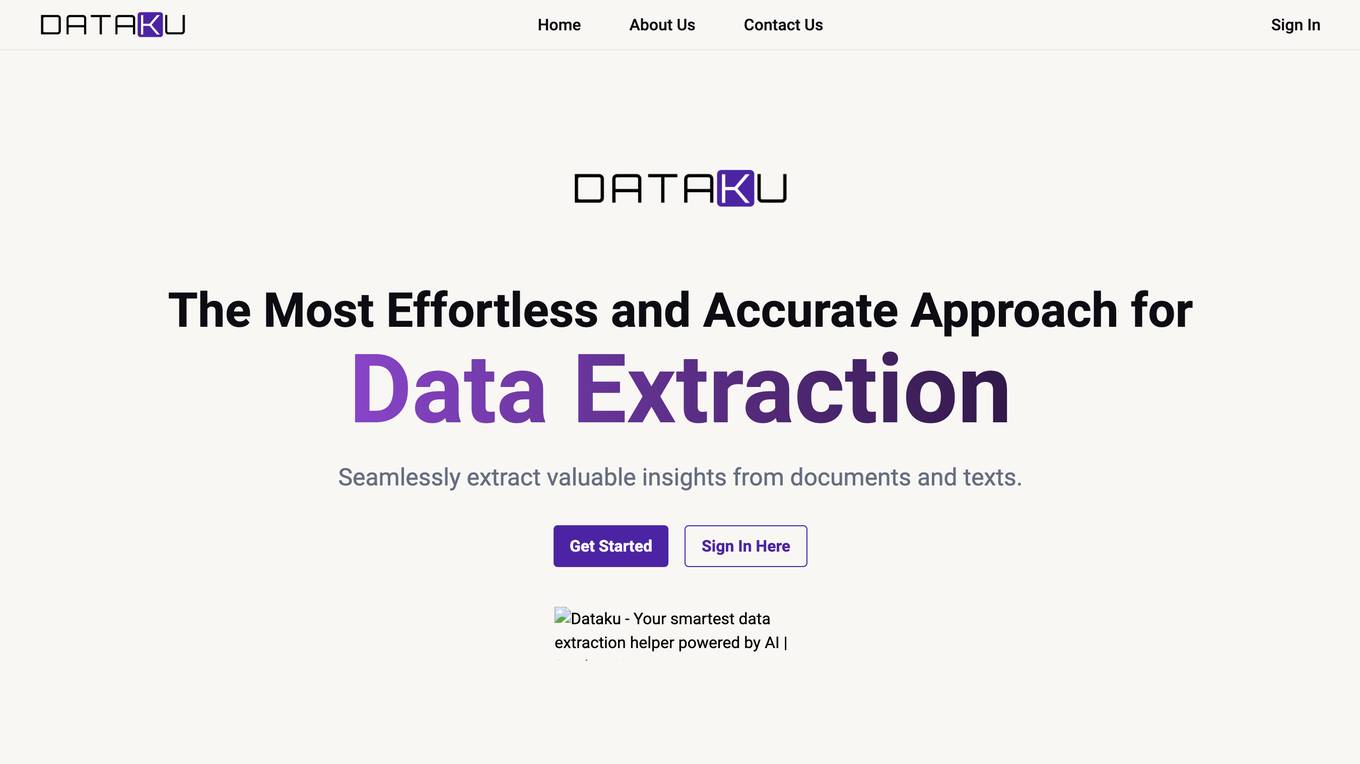
Dataku.ai
Dataku.ai is an advanced data extraction and analysis tool powered by AI technology. It offers seamless extraction of valuable insights from documents and texts, transforming unstructured data into structured, actionable information. The tool provides tailored data extraction solutions for various needs, such as resume extraction for streamlined recruitment processes, review insights for decoding customer sentiments, and leveraging customer data to personalize experiences. With features like market trend analysis and financial document analysis, Dataku.ai empowers users to make strategic decisions based on accurate data. The tool ensures precision, efficiency, and scalability in data processing, offering different pricing plans to cater to different user needs.
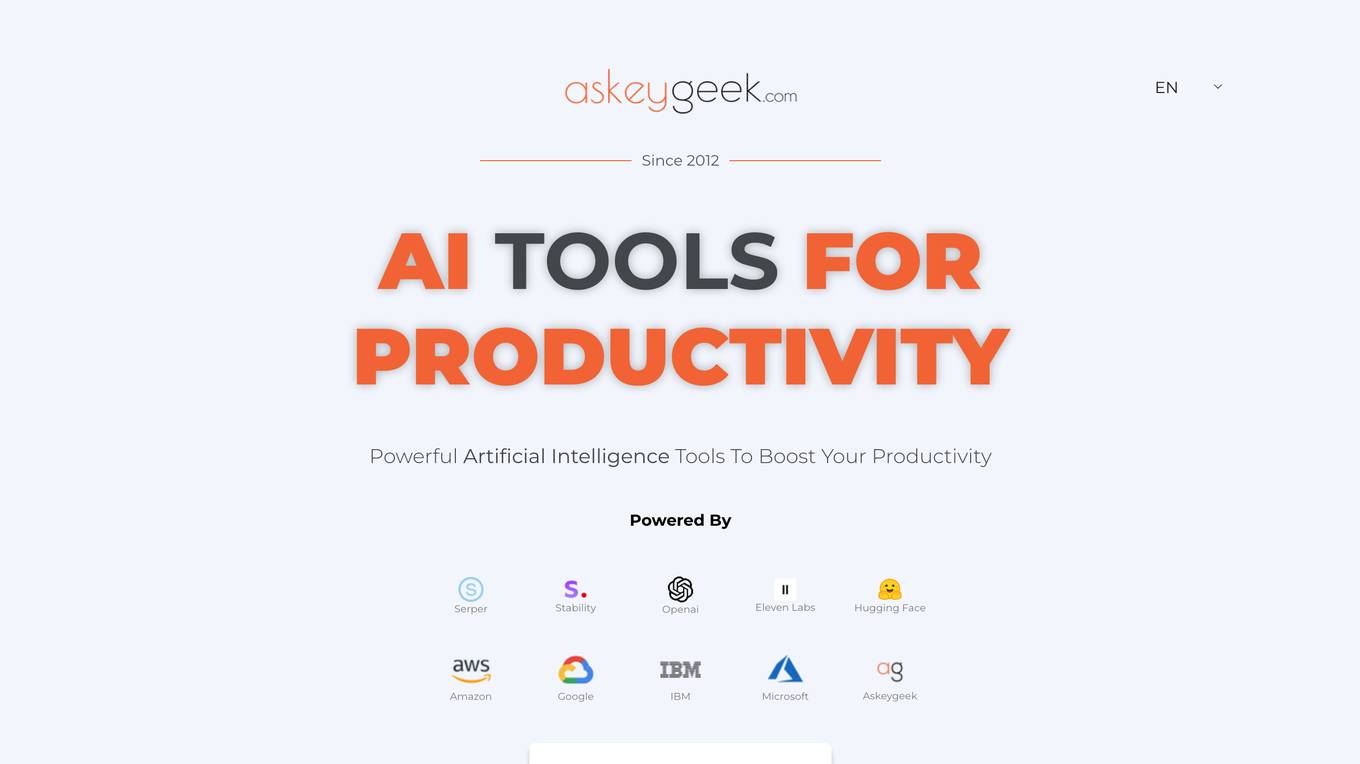
Askeygeek.com
Askeygeek.com is a website that provides a variety of AI tools for productivity. These tools can be used to generate creative content, convert written content into audio, transcribe audio recordings, extract relevant information from documents, and translate content into different languages. Askeygeek.com also offers a variety of free web tools, including SEO tools, website development tools, and AI-powered tools like UberTTS, UberScribe, and UberCreate.
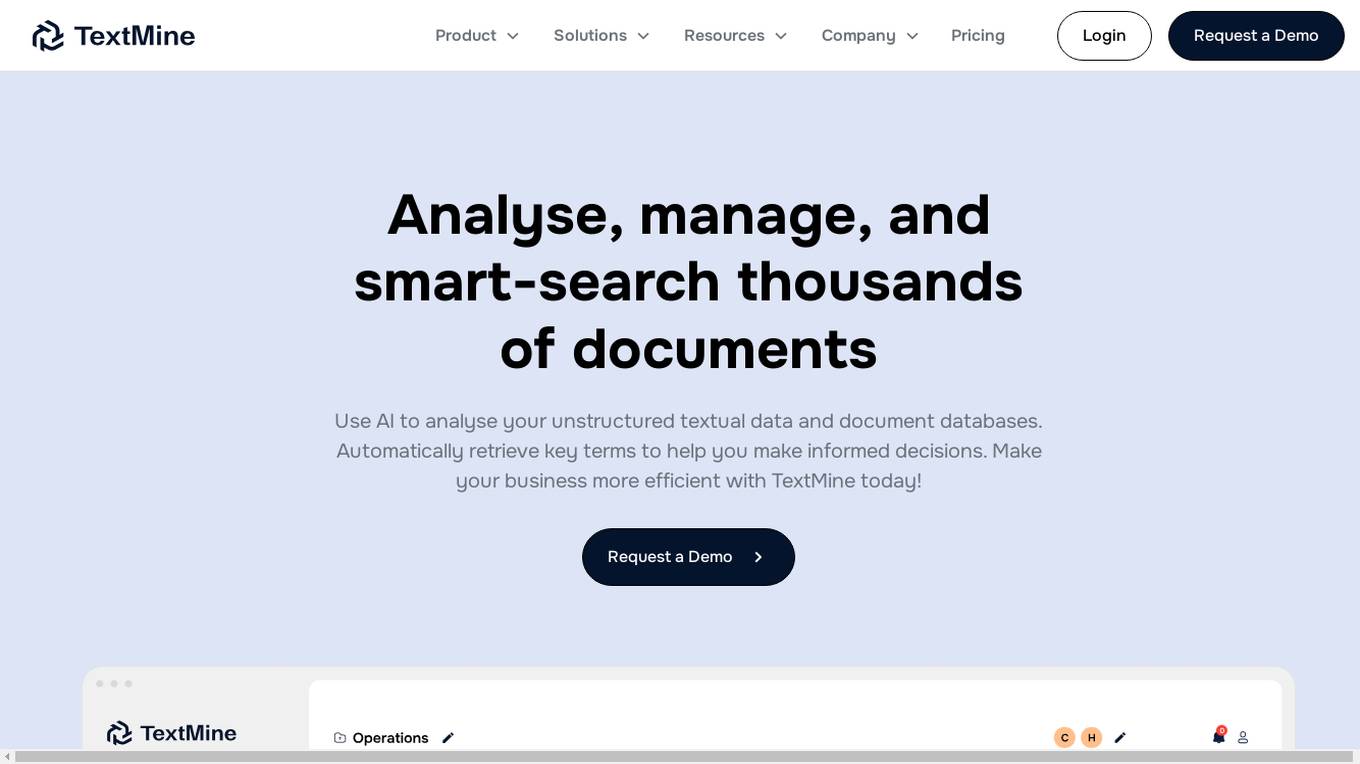
TextMine
TextMine is an AI-powered knowledge base that helps businesses analyze, manage, and search thousands of documents. It uses AI to analyze unstructured textual data and document databases, automatically retrieving key terms to help users make informed decisions. TextMine's features include a document vault for storing and managing documents, a categorization system for organizing documents, and a data extraction tool for extracting insights from documents. TextMine can help businesses save time, money, and improve efficiency by automating manual data entry and information retrieval tasks.
2 - Open Source AI Tools
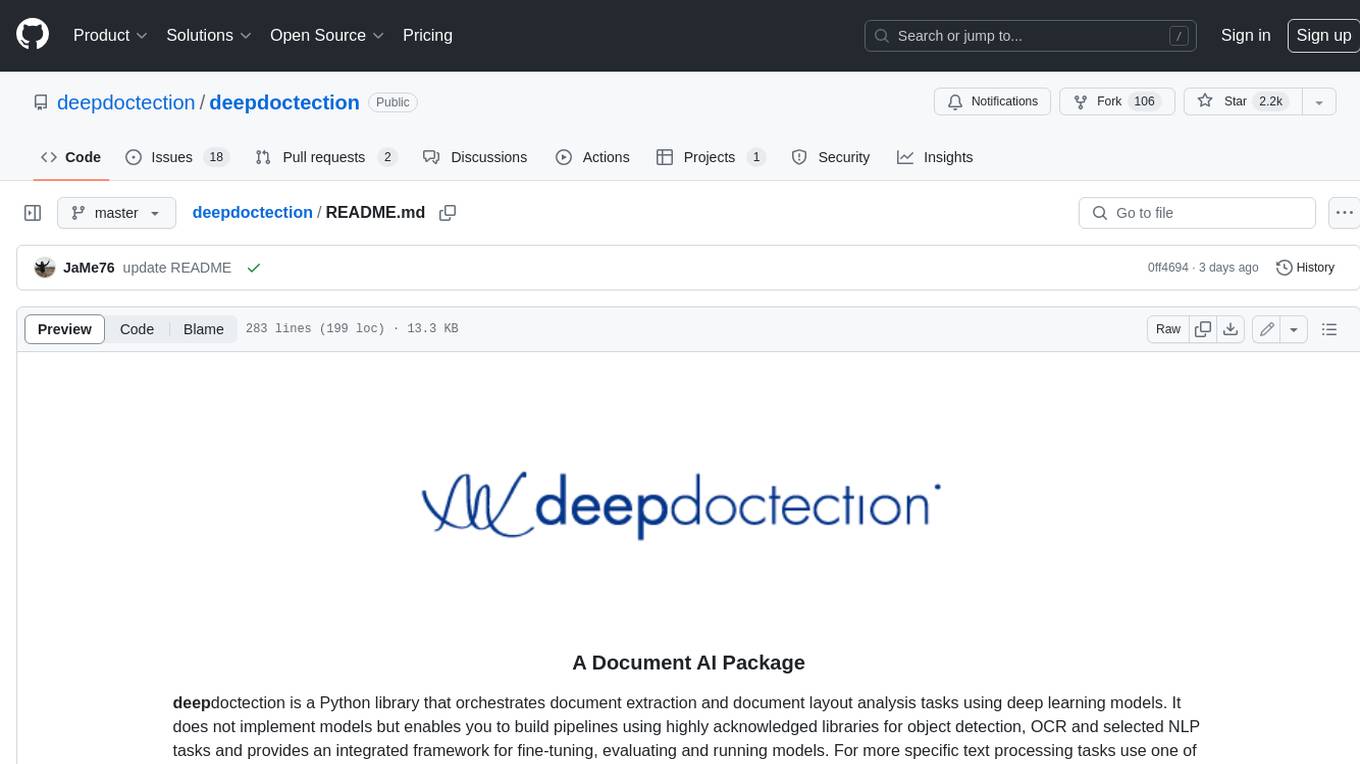
deepdoctection
**deep** doctection is a Python library that orchestrates document extraction and document layout analysis tasks using deep learning models. It does not implement models but enables you to build pipelines using highly acknowledged libraries for object detection, OCR and selected NLP tasks and provides an integrated framework for fine-tuning, evaluating and running models. For more specific text processing tasks use one of the many other great NLP libraries. **deep** doctection focuses on applications and is made for those who want to solve real world problems related to document extraction from PDFs or scans in various image formats. **deep** doctection provides model wrappers of supported libraries for various tasks to be integrated into pipelines. Its core function does not depend on any specific deep learning library. Selected models for the following tasks are currently supported: * Document layout analysis including table recognition in Tensorflow with **Tensorpack**, or PyTorch with **Detectron2**, * OCR with support of **Tesseract**, **DocTr** (Tensorflow and PyTorch implementations available) and a wrapper to an API for a commercial solution, * Text mining for native PDFs with **pdfplumber**, * Language detection with **fastText**, * Deskewing and rotating images with **jdeskew**. * Document and token classification with all LayoutLM models provided by the **Transformer library**. (Yes, you can use any LayoutLM-model with any of the provided OCR-or pdfplumber tools straight away!). * Table detection and table structure recognition with **table-transformer**. * There is a small dataset for token classification available and a lot of new tutorials to show, how to train and evaluate this dataset using LayoutLMv1, LayoutLMv2, LayoutXLM and LayoutLMv3. * Comprehensive configuration of **analyzer** like choosing different models, output parsing, OCR selection. Check this notebook or the docs for more infos. * Document layout analysis and table recognition now runs with **Torchscript** (CPU) as well and **Detectron2** is not required anymore for basic inference. * [**new**] More angle predictors for determining the rotation of a document based on **Tesseract** and **DocTr** (not contained in the built-in Analyzer). * [**new**] Token classification with **LiLT** via **transformers**. We have added a model wrapper for token classification with LiLT and added a some LiLT models to the model catalog that seem to look promising, especially if you want to train a model on non-english data. The training script for LayoutLM can be used for LiLT as well and we will be providing a notebook on how to train a model on a custom dataset soon. **deep** doctection provides on top of that methods for pre-processing inputs to models like cropping or resizing and to post-process results, like validating duplicate outputs, relating words to detected layout segments or ordering words into contiguous text. You will get an output in JSON format that you can customize even further by yourself. Have a look at the **introduction notebook** in the notebook repo for an easy start. Check the **release notes** for recent updates. **deep** doctection or its support libraries provide pre-trained models that are in most of the cases available at the **Hugging Face Model Hub** or that will be automatically downloaded once requested. For instance, you can find pre-trained object detection models from the Tensorpack or Detectron2 framework for coarse layout analysis, table cell detection and table recognition. Training is a substantial part to get pipelines ready on some specific domain, let it be document layout analysis, document classification or NER. **deep** doctection provides training scripts for models that are based on trainers developed from the library that hosts the model code. Moreover, **deep** doctection hosts code to some well established datasets like **Publaynet** that makes it easy to experiment. It also contains mappings from widely used data formats like COCO and it has a dataset framework (akin to **datasets** so that setting up training on a custom dataset becomes very easy. **This notebook** shows you how to do this. **deep** doctection comes equipped with a framework that allows you to evaluate predictions of a single or multiple models in a pipeline against some ground truth. Check again **here** how it is done. Having set up a pipeline it takes you a few lines of code to instantiate the pipeline and after a for loop all pages will be processed through the pipeline.
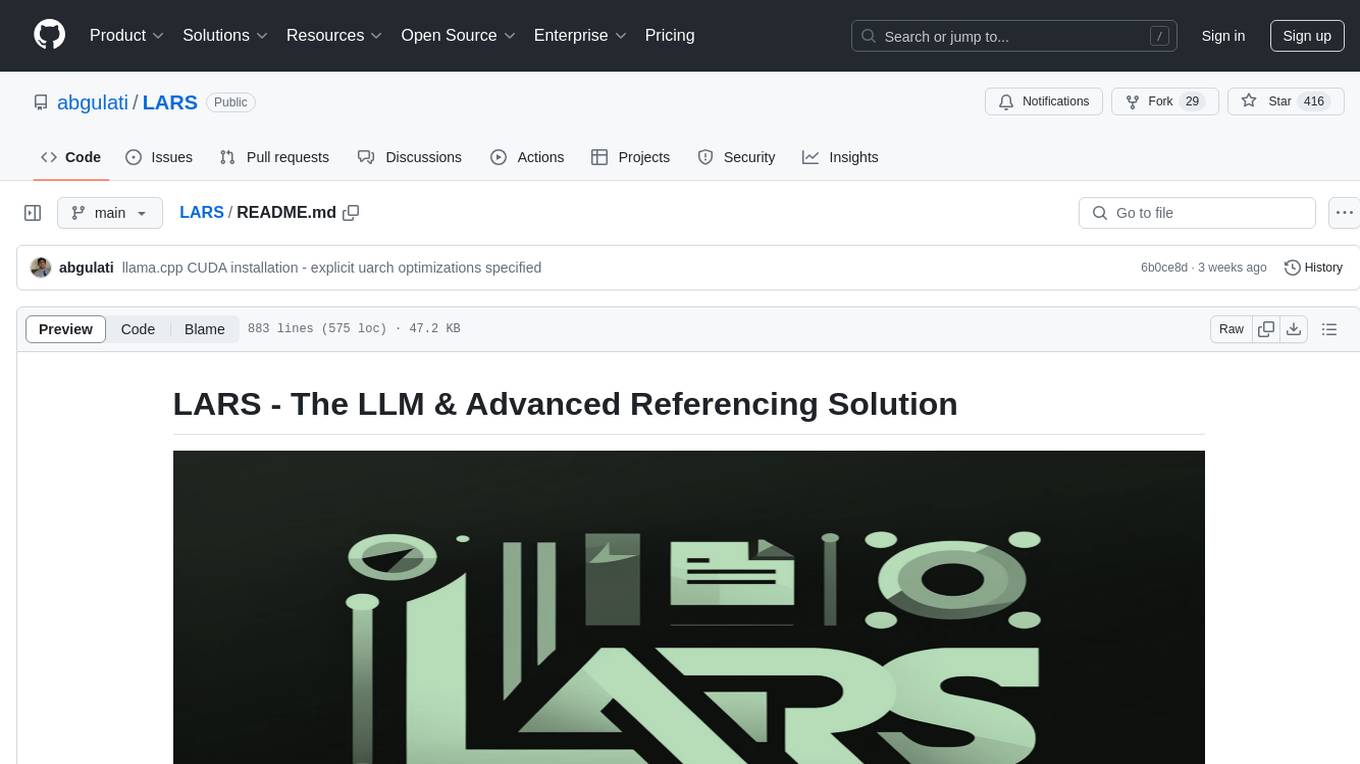
LARS
LARS is an application that enables users to run Large Language Models (LLMs) locally on their devices, upload their own documents, and engage in conversations where the LLM grounds its responses with the uploaded content. The application focuses on Retrieval Augmented Generation (RAG) to increase accuracy and reduce AI-generated inaccuracies. LARS provides advanced citations, supports various file formats, allows follow-up questions, provides full chat history, and offers customization options for LLM settings. Users can force enable or disable RAG, change system prompts, and tweak advanced LLM settings. The application also supports GPU-accelerated inferencing, multiple embedding models, and text extraction methods. LARS is open-source and aims to be the ultimate RAG-centric LLM application.
20 - OpenAI Gpts
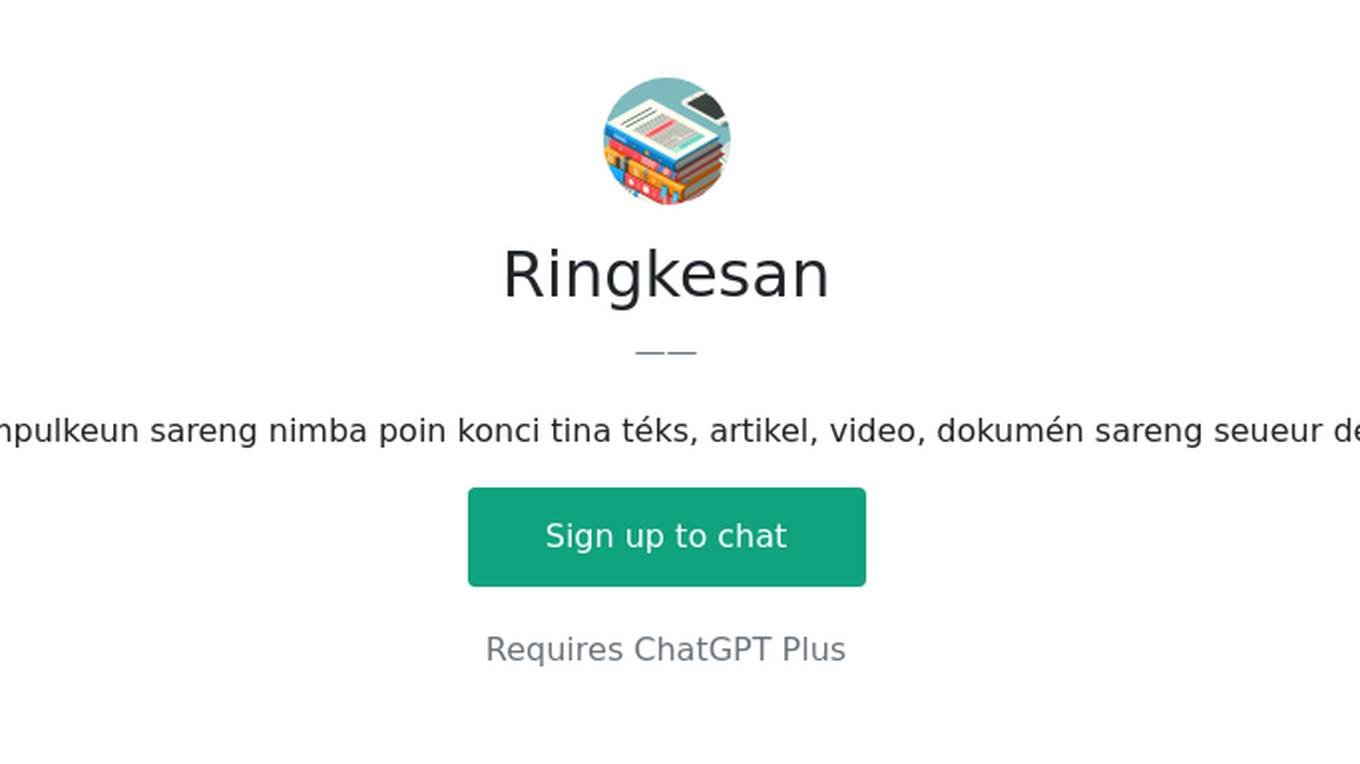
Ringkesan
Nyimpulkeun sareng nimba poin konci tina téks, artikel, video, dokumén sareng seueur deui
QCM
ce GPT va recevoir des images dans lesquelles il y a des questions QCM codingame ou Problem Solving sur les sujets : Java, Hibernate, Angular, Spring Boot, SQL. Il doit extraire le texte depuis l'image et répondre au question QCM le plus rapidement possible.
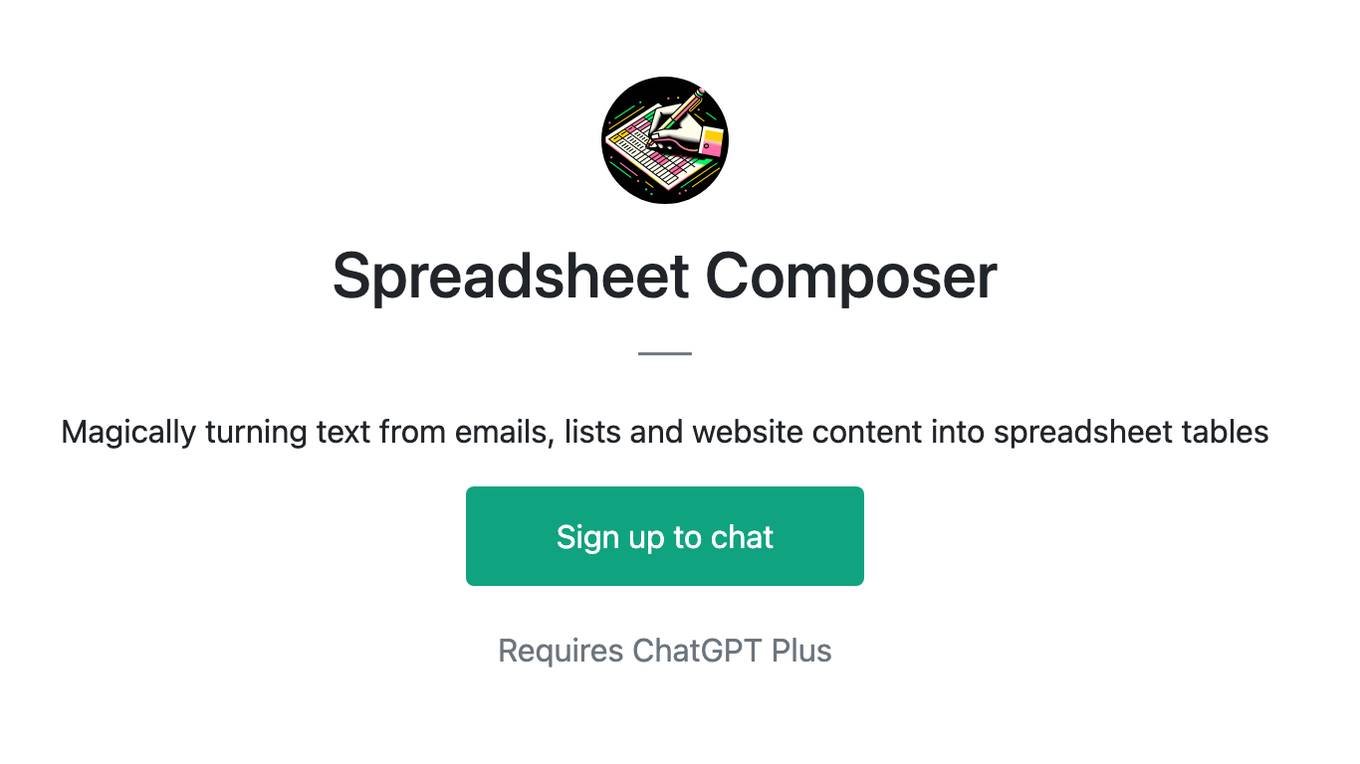
Spreadsheet Composer
Magically turning text from emails, lists and website content into spreadsheet tables
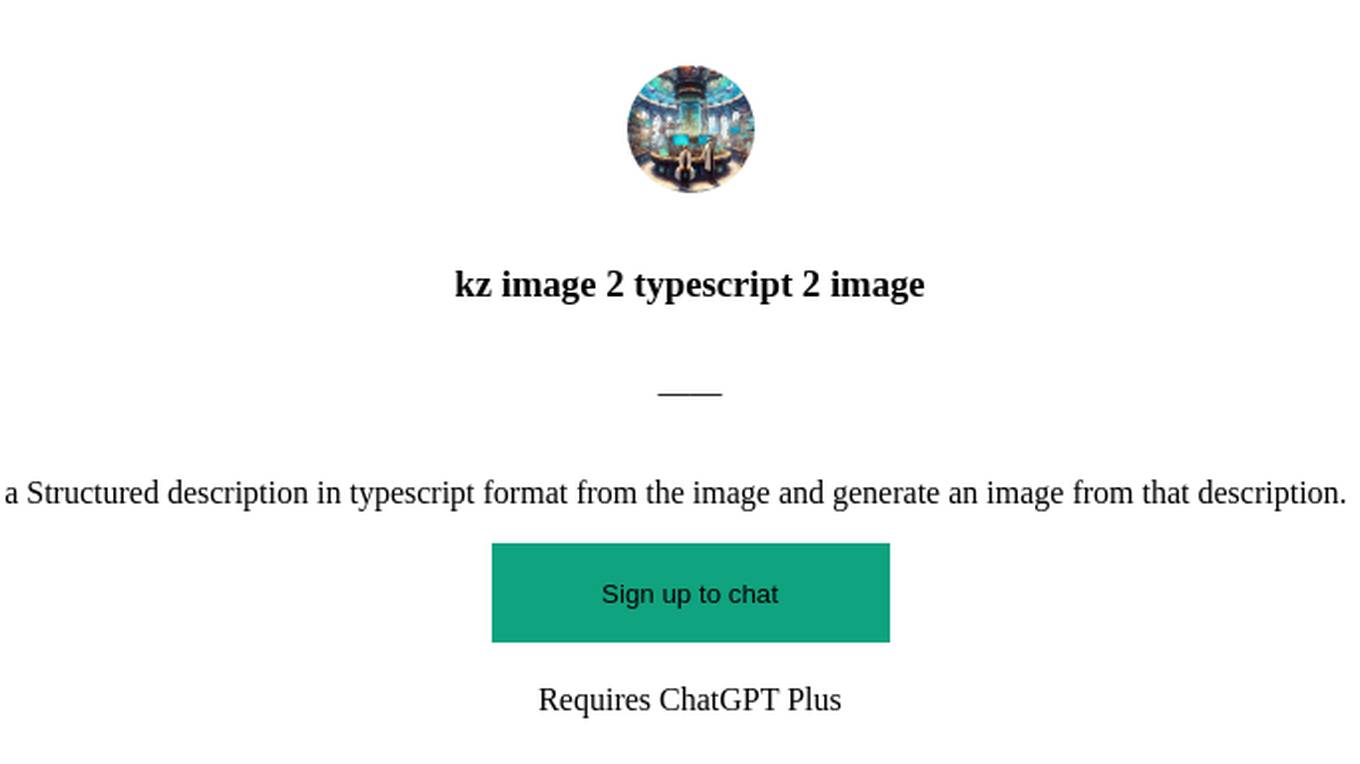
kz image 2 typescript 2 image
Generate a Structured description in typescript format from the image and generate an image from that description. and OCR
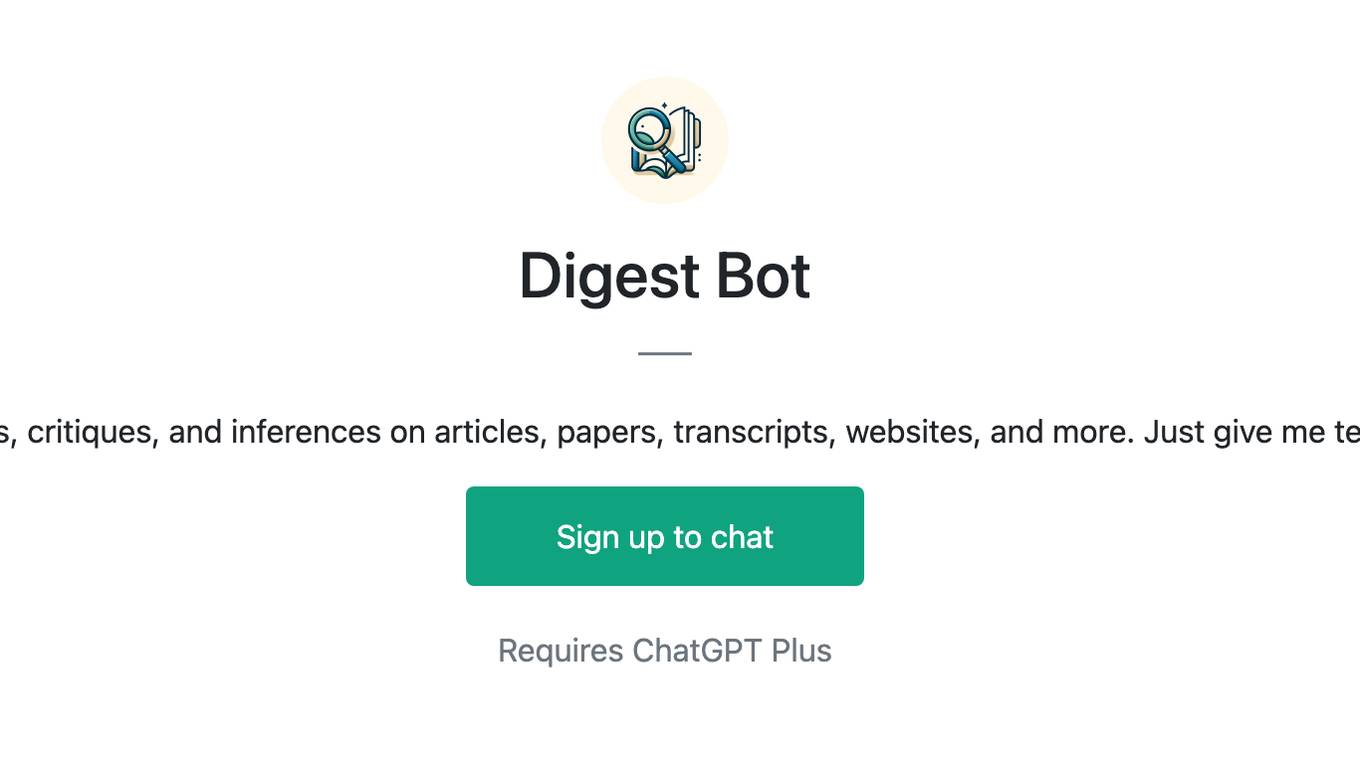
Digest Bot
I provide detailed summaries, critiques, and inferences on articles, papers, transcripts, websites, and more. Just give me text, a URL, or file to digest.
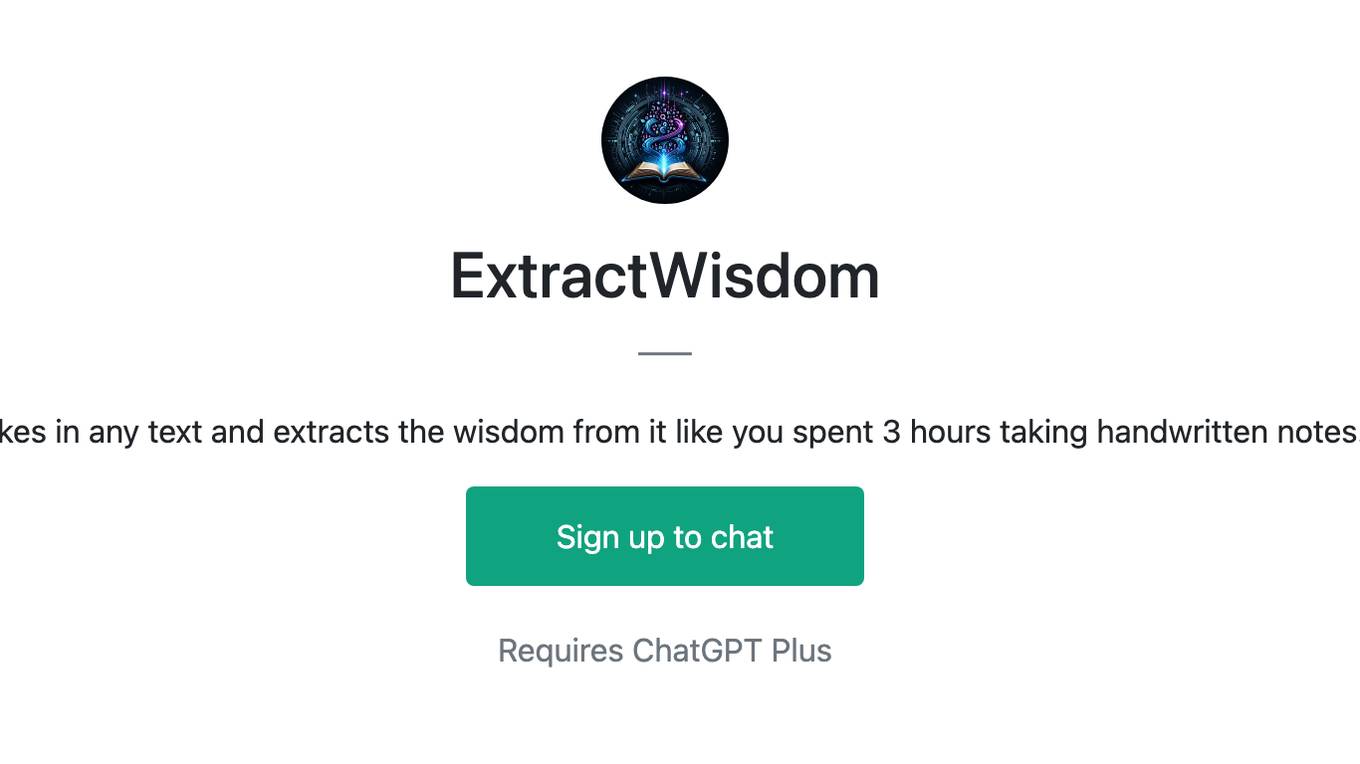
ExtractWisdom
Takes in any text and extracts the wisdom from it like you spent 3 hours taking handwritten notes.
